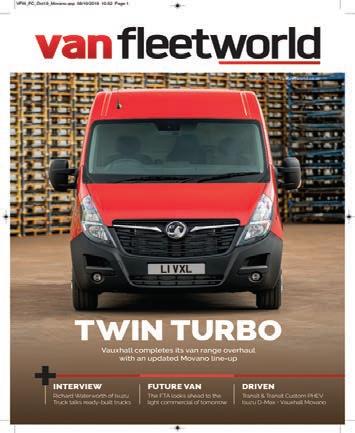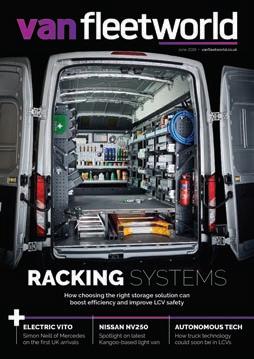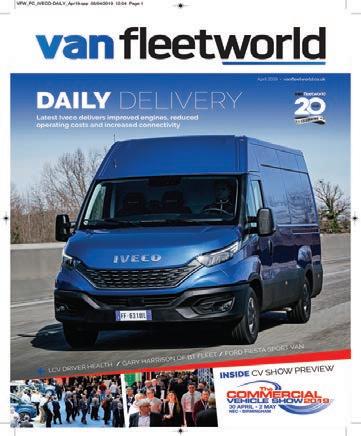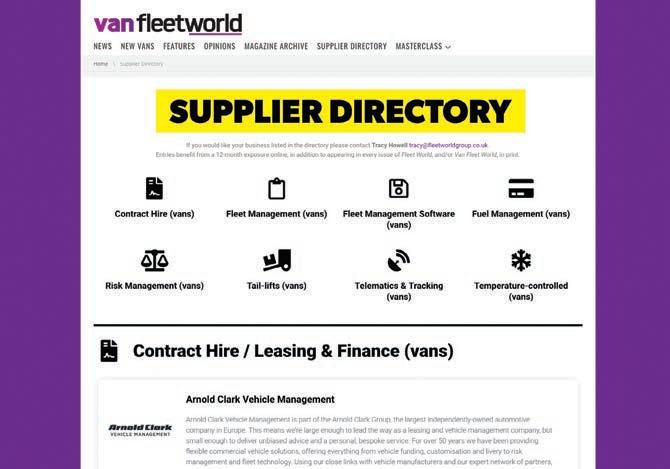SOFTWARE SOLUTIONS





































I don’t consider myself old but I can remember having four television chan nels, limited takeaway options and a choice of just rugby or football for after-school activities. However, over the course of the past 40-odd years, there’s been an explosion of options, be it entertainment, food (although one fewer since my favourite Italian restaurant announced it was closing recently) or cars.
With regards to the latter, I’m in the fortunate position where I get to sample a wide and varied range, which is perfect because I’m not great when forced to choose. Give me a big menu in the aforementioned Italian and I’d typically ignore everything else and go for a calzone. Every time!
But back to cars. There’s clearly an abundance of automotive choice –although the more we brush over the supply or actual delivery date of your desired motor, the better.
Plenty of fleets will be looking to cars to save money, improve efficiency and facilitate the transition to electrification, but it’s not just the vehicles themselves that can help here. Our cover story – as you hopefully will have spotted – in this issue of Fleet World is all about finances and, specifically, how to reduce them. There are a wide range of hints, tips and solutions that you can adopt within your business to balance the books most welcome at a time where the phrase ‘cost-of-living crisis’ is the latest popular C-word around the UK.
A special mention for our ever-popular SWOT team who have given their thoughts about a cost-conscious quartet. In a world filled with SUVs and ‘lifestyle’ products, the likes of the Fiesta, Fabia, Yaris and Corsa still have a role to play. Look at the numbers and you might find one is the right choice for you!
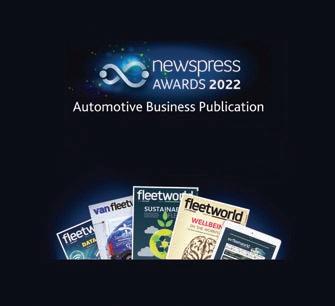
The Great British Fleet Event is on the move. Fleet World’s annual focal point for the industry is relocating from London to Milton Keynes next year and will take place on 25 April 2023.

The new location – Marshall Arena – promises to host an event that is bigger and better than ever. There will be expanded high-level Masterclass sessions – taking place in both the morning and afternoon. These will run alongside the usual exhibition, where visitors can get a feel of the latest innovations, tech nologies and ideas that are designed to help fleets maximise their potential.
The longer day session means the Great British Fleet Awards get a prime time slot in the late afternoon for a gala dinner and further celebration of the best people and cars in the industry. www.greatbritishfleetevent.co.uk
Stay up to date at fleetworld.co.uk
“Give me a big menu in the aforementioned Italian and I’d typically ignore everything else and go for a calzone”



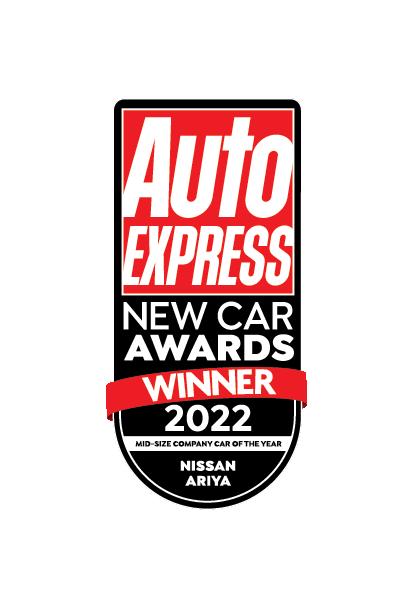
What is your ambition in your current job role?
I want to play my part in the continuing success of the iconic Maserati brand.
What job did you want to do when growing up?
I knew I didn’t want to work for a bank, but then had a long career in the bank-owned leasing industry!
The best takeaway food is?
I should probably say Italian but I’ll go with Thai.
What’s the proudest moment in your career?
To see the evolution of Maserati in the market and what we achieve as a small team in the UK.
What the Stellantis Group has done – and is doing – with diver sity and inclusion is fantastic, too.
Favourite James Bond?
Timothy Dalton. There was some thing about The Living Daylights that really stayed with me.
If money was no object, what’s the first thing you would buy?
Maserati MC20 Cielo! It’s a beautiful thing.
Name three cars in your dream garage
A 1957-64 Maserati 3500 GT, our new Maserati Grecale (natu rally) and a 1970s Saab 96 – I had one when I was younger and wish I’d never parted with it.
The biggest challenges facing fleets at the moment?


Energy and fuel costs, choosing the right funding solution and component and parts availability.
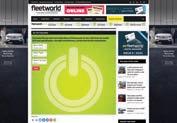

Your dream holiday... Where in the world are you?
An American theme park with my family or Dalyan in Turkey.
Night in or night out? London. Soho. Karaoke.
Supermarket of choice?
Asda, but out of necessity. Our house needs a lot of work – and, therefore, money!
A Compass PHEV for the BIK advantage. I have my eye on a Citroën C5 X – until I find a way into our all-electric Grecale Folgore!
Tea, coffee or other?
Coffee! Never before joining Maserati have I tasted such great coffee.
The occasional good book, the odd magazine and a lot of Netflix. And Radio 1, which genuinely improves my mood.
My wife (and children). Also, I have been fortunate to work for some great leaders and benefit ted from three great mentors.

do it all. That’s why more
solution to get their
they
Plans recently announced by the Government set out new legisla tion that will allow for the safe wider rollout of self-driving vehicles by 2025. Former transport secretary Grant Shapps, who explained the initiative, said some vehicles that can drive themselves on motorways could be available to purchase within the next year. Users would need a valid driving licence for these, so they can drive on other roads.
These would be followed by other self-driving vehicles, for example used for public transport or delivery. Those vehicles are expected on the roads by 2025 and would not need anyone on board with a driving licence because they would be able to drive themselves for the whole journey.

The plans are being supported by a new consultation, seeking views on the safety behind such plans.
It is claimed the move would bring economic benefits – the Government esti mates it could create up to 38,000 jobs and be worth £42bn. But self-driving vehicles could also revolutionise public transport and passenger travel – especially for those who don’t drive – and also better connect rural communities and reduce road colli sions caused by human error.
They could also, in the future, provide tailored on-demand links from rural towns and villages to existing public transport options nearby and deliver more direct and timely services that enable people to better access
vital services such as schools and medical appointments.
The Government is backing its plans for self-driving vehicles by a total of £100m, with £34m confirmed for research to support safety developments and inform more detailed legislation. This could include researching the performance of self-driving cars in poor weather condi tions and how they interact with pedestri ans, other vehicles and cyclists
It’s also pledged £20m, again part of the overall £100m, to help kick-start commercial self-driving services and enable businesses to grow and create jobs in the UK, following an existing £40m investment. Successful projects could help see, for example, groceries delivered to customers by self-driving vehicles, or shuttle pods assisting passen gers when moving through airports. In addition, £6m will be used for further market research and to support commer cialisation of the technology.
The AA welcomed the move and said the Government was right to embrace the positive changes offered by self-driving technology and back it by funding research and putting forward legislation.
President Edmund King added: “Assisted driving systems, for exam ple, autonomous emergency braking and adaptive cruise control, are already helping millions of drivers stay safe on the roads.
“It is still quite a big leap from assisted driving, where the driver is still in control, to self-driving, where the car takes control,” he continued. “It is impor tant that the Government does study how these vehicles would interact with other road users on different roads and chang ing weather conditions.
“However, the ultimate prize, in terms of saving thousands of lives and improv ing the mobility of the elderly and the less mobile, is well worth pursuing.”
Meanwhile, Thatcham Research said it welcomed “the breadth of the Govern ment’s ambi-tion in positioning the UK as a centre for self-driving innovation”, along with the safety-first approach it has laid out.
Chief executive Jonathan Hewett elab orated: “Ensuring that safe adoption is at the centre of its plans will play a pivotal role in realising the societal benefits of self-driving technology.
“The cars we drive are changing at an unprecedented rate. But the automotive industry is still at the lower end of a steep learning curve. It’s vital that we balance the risk with the opportunity, gathering intelligence on the different use cases for the technology and in turn understand ing what it means for all road users.
“All the ingredients are present for the UK to become a global leader in this space. However, it is paramount that we make sense of the data these vehicles will provide, to inform risk and ultimately pave the way for safe adoption.”
Launching a successful new car scheme is so much more than just the policy itself. Of course, the right scheme developed around the business’ objectives and the employees’ needs is essential. However, some simple yet effective steps may have been missed out of the implementation process that focus on employee engagement, which ensures they understand the benefits and risks of the new scheme and ‘buy into’ its purpose.
The entire driver journey needs to be considered when designing a new company car scheme; it’s fundamental for its success. Whilst in theory you may have the perfect policy in place, if in practice your employees do not fully understand how it works, what’s the right option for them or what’s expected, then it may well fail before it’s even launched.
JCT600 VLS is passionate about not only providing a tailored solution for the busi ness and its employees through our ongoing consultation, but strongly believe in a right first-time implementation. In our experience, this is achieved through an effective driver journey from inception to launch and beyond.
The driver journey is exactly what we had in mind when we developed Origo, our state-of-the-art driver system. Whilst its technically advanced multi-scheme analy sis helps employees to make an informed decision, it does so in a simple and effec tive online journey, enabling them to seamlessly navigate their way through even the most complex of schemes.
Origo was designed to easily deliver all car policies within a single portal, making it simple for both employees and employers. Employees can go through the entire quote to order process on new vehicles, track any existing orders and access all the services they require on existing vehicles. Displaying side-by-side comparisons of vehicles from the policy, it provides each employee with a real time, personal whole life cost calculation to help them make the right choice. The best kind of systems do more than just provide your drivers with the ability to choose a car from a list.
Whilst it’s important to choose a fleet partner that will work closely with you to determine the right solution initially, it’s essential you understand the ongoing consultation and support you will receive. Technology is only one part of delivering the car scheme, but it’s an extremely important part of the driver journey and may well determine whether it’s successful or not.
Christopher Caddick Head of Business Development JCT600 Vehicle Leasing Solutions
Working hand in hand with an award-winning team, Origo is the only platform 昀eet managers and drivers need to launch and manage car schemes simply.
Salary sacri昀ce
Company car
Cash allowance schemes
“Origo was designed to easily deliver all car policies within a single portal, making it simple for both employees and employers.”
Our editor-at-large considers the debate around tyre particulates –and how much attention fleets should be paying to this discussion

The UK hasn’t fallen out of love with the convenience of road transport just yet, but it’s taken some serious reputational damage recently. After a decade of high-profile crises around effi ciency and air quality, the bad news can feel relentless at times, but it’s not always unjus tified. As technology leads us towards cleaner powertrains, the impact of nonexhaust emissions – especially tyres – are coming under ever-closer scrutiny and it’s a debate fleets should be watching closely.
Concerns about tyre and road wear particles (TRWP – a bonded 50/50 mix of materials from the tyres and the road surface) are nothing new. The manufac turer-backed global Tire Industry Project (TIP) was formed in 2005 to start filling knowledge gaps and the European Tyre and Rubber Manufacturers’ Association (ETRMA) formed its own working group in 2018. At an industry level, the goal is to develop standardised testing methods, identify what influences abrasion rates
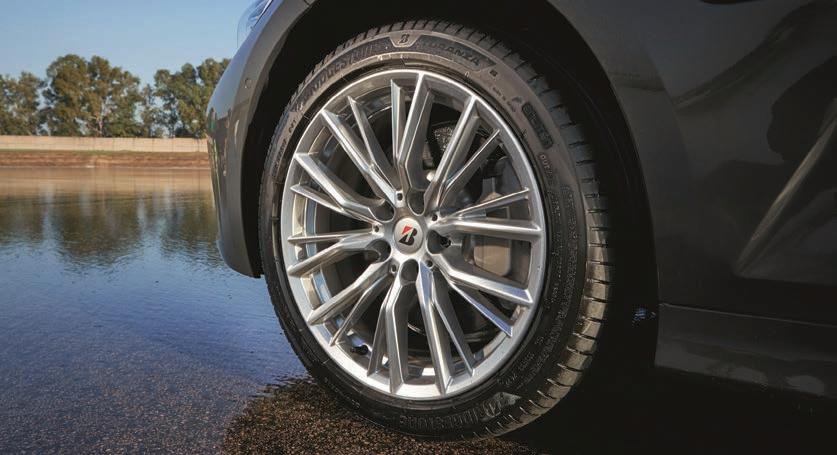
and then either mitigate emissions at source, or capture material nearby.
The potential scale of this issue is certainly headline worthy. In 2019, the UK’s National Atmospheric Emissions Inventory claimed that brake, tyre and road wear accounted for 73% and rising of PM10 (fine) and 60% of PM2.5 (ultra-fine) and road transport particulate emissions the latter capable of getting into our bloodstream and lungs. A year later, government-funded research at the University of Plymouth concluded that TRWP is also one of the biggest sources of marine microplastics, having been carried to sea by storm drains.
However, it’s the 2020 study by Emis sions Analytics that’s perhaps become more notorious, although mostly due to misinterpretation. The independent labo ratory set out to simulate best and worstcase abrasion tests, as a baseline indication of how driving style and vehicle weight influence particulate emissions. At worst (and, by their own admission, an exaggerated case) the results suggested the latest RDE2 compliant cars could be emitting 1,000 times more particulate matter from their tyres than at the tailpipe.
The resulting media frenzy, and Commons discussion, focused on the implications for our reliance on usually heavier electric vehicles to reduce our transport emissions. Few outlets paid much attention to the wider issue raised about vehicles getting heavier across the board – most SUVs still have tailpipe emis sions to think about.
Emissions Analytics has since stressed that driving style can counteract the effects of EVs’ additional weight and has begun classifying tyres by the toxicity of their component materials. If the latter sounds like a niche interest, bear in mind that California recently proposed controls on a substance called 6PPD, used to stop tyres hardening, having discovered that waterborne tyre particulates were killing salmon and trout. A potential precedent for other markets?
Solutions will take time. Tyres are safety-critical and inevitably shed mate rial as they wear and the industry is focus ing on what happens afterwards. Goodyear revealed a biodegradable tyre in 2020, while Michelin and Continental are integrating organic materials into new products and prototypes. In Germany, the Audi-funded URBANFILTER project is testing roadside filtration systems, which can be adapted to suit weather and traffic conditions.
Fleets can take steps in the meantime. Encouraging better driver behaviour –including regular pressure checks – can help. And there’s data to support more informed procurement too. German motoring association ADAC is ranking tyres by particulate output, showing the best performers shed half as much mate rial as the industry average, while the worst emit 50% more. With the buying power to influence further innovation –and the operational scale to make emis sions reduction worthwhile – fleets should definitely be watching this one closely.
“As technology leads us towards cleaner powertrains, the impact of non-exhaust emissions – especially tyres – are coming under evercloser scrutiny and it’s a debate fleets should be watching closely”

Want to streamline fleet costs and add in a greater level of efficiency? Read on for some hints and tips from industry experts to help boost the bottom line
Managing a vehicle fleet is no walk in the park. The postpandemic recovery has been met with one macro issue after another. Reduced vehicle supply has added to mounting pressure on fleet managers, exacerbated by UK car production declining by almost a fifth in the first six months of 2022. Fuel prices are another concern, as business costs spiral. Against this challenging backdrop we are also witnessing a quiet revolution, as the automotive industry is becoming increasingly electric, following regulation in 2020 – something not all fleet managers seem prepared for.
The transition to electric vehicles (EVs) poses financial and logistical challenges and insurance considerations. Going electric has clear long-term benefits for fleet managers and the earlier you prepare, the more rewards you can reap.
An early transition to electric can lead to reduced costs for running fleets. Recently, petrol and diesel prices have soared and running traditional vehicles is becoming increasingly expensive. Research from KeeResources shows that electric cars are at least 30% cheaper to service and maintain than carbon-based equivalents. In many cases, EVs can be half the cost per mile of their petrol-based counter parts. As such, transitioning to electric could save fleet managers a significant amount over the long run.
As cost-savvy fleet managers move towards EV fleets, the overall number of electric vehicles on the streets is growing, with over three quarters of a million now on UK roads. Over time, infrastructure will increasingly cater to EVs, particularly after 2035 when all new cars and vans in the UK will need to be zero emission at the tailpipe. While shifting the fleet to become electric will save hassle in the long run as well as
Nicola Richmond, head of Churchill Expert
ensuring your business is climate-conscious, it is important to make sure it is adequately insured against theft and damages.

Having an environmentally forward stance is becoming increasingly important to employees and businesses are adopting specific schemes to demonstrate their commit ments in this area. Our research shows that a third of drivers say access to an Electric Car Salary Sacrifice Scheme (ECSSS) would have a positive effect on how they view their employer. Interestingly, 17% would even consider switching jobs if a similar company were offering an ECSSS. Clearly, employees value action from their employer to a point where they would consider moving job.
Businesses have also recognised this mood shift; our research amongst SMEs shows there is an increasing appetite to offer these schemes, as over two-thirds of SMEs are currently considering an ECSSS, and 45% believe it will have a positive effect on staff retention. Drivers want to be a part of this change, to the point where 65% of motorists have said they are willing to lease or subscribe to a car to make the transition. To ensure a smooth transition, fleet managers must make sure electric vehicle fleets have necessary insurance cover.
As the transition to EVs gathers momentum, we will continue to be at the forefront. Our team of dedicated underwriters can support businesses with fleet insurance policies for electric vehicles, covering all the risks one would expect, such as vehi cle theft, accidental damage, battery, theft of charge cables and EV charger wall boxes. While some may feel the 2030 deadline for transition is still a way off, we can help businesses prepare now for a brighter, electric future.
with
Christopher Caddick, head of business development, JCT600 Vehicle Leasing Solutions (VLS)

Many of the challenges affect ing the automotive industry are outside of the fleet manager’s control and influence. It’s worth focusing on the areas that can be controlled and will make a difference to costs, both now and in the future.
Start with the existing vehicles on the road and how current contracts can be maximised. For those operating three- to four-year fleet cycles, a lot has happened to the world in that time. The mileage originally specif ied may no longer be right for the business’ needs today.
Can contracts be extended or rewrit ten to take into account the new mileages? The whole-life cost of the vehicle must be considered here, not
just the short-term monthly cost savings. The used car market is strong at moment, so even early terminations, where appropriate and dependent on your contract, may well not be as much of a cost as perceived.
When looking at future vehicles, consider funding methods. What worked three years ago may not be the most cost-effective solution today.
Claire Evans, fleet consultancy director at Zenith Vehicles

Fuel and energy costs are often seen by fleet operators as an unavoidable cost of doing business. However, through careful policy design, there are ways that can help operators both control and manage these costs.
By introducing a salary sacrifice scheme, fleet operators can make savings on fuel costs for cash takers and
grey fleet drivers. At Zenith, four out of five salary sacrifice orders are for elec tric vehicles, which attract a much lower business pence per mile (PPM) reimbursement rate.
Using the Advisory Electric Rate (AER), a typical EV would cost a fleet operator 5p per business mile compared to 14p when using a typical petrol equivalent. This saving of 9ppm could rise to as much as 15ppm when reimbursing at cost. While this initially may seem minimal, it equates to a £90,000 saving (when converting 200 cash takers to EV at 5,000 business miles per annum).
Meanwhile, we recently worked with a company where just over 70% of their fleet was PHEV. By using real-world MPGs in the WLC calculation, we were able to identify post-tax savings of £464 per car a year, based on the fleet’s aver age business mileage of 6,000 a year.


With the extreme pressure on supply chains, it has become even more important for fleet managers to work with leasing companies that take a consultative approach and research all available options to find solutions.
With fleet costs continuing to rise, Pendragon Vehicle Management (PVM) works directly with clients, demonstrating flexible cost-saving solutions to suit individual company and driver needs.
With petrol/diesel prices rising sharply, there are now clear opportuni ties to demonstrate to a business where savings can be made over a contract period. Typically, the largest savings are made by comparing the fuel costs of electric versus diesel/petrol.
In addition to WLC analysis, PVM offers various approaches to each of our clients aimed at incentivising drivers to consider going electric. For example, a driver may pay less tax if going from petrol to electric to help fund a higher-specification EV as the BiK saving will be greater. Clients may also wish to offer their drivers a more competitive reimbursement rate on electric mileage.



Cost pressures and supply chain disruption risk hitting the margins of fleet businesses hard. Pump prices may have fallen back from their record highs, but the fuel cost burden remains notably higher than 12 months ago. Back then (August 2021), average petrol and diesel prices stood at £134.66ppl and£137.11ppl respectively.
Against this economic backdrop, fleets can do little more than focus on the factors within their control. The challenging environment is undeni able, but for prudent strategists, oppor tunitiesforsustainablecostsavingscan stillbefound.
A short-term approach to cost control may be understandable when faced with market and economic uncertainties, but this can be to the detriment of the greater financial good. An outsourced partner can be capable of delivering long-term savings across the board –from procurement, fuel spend and insurance to cost approvals, expense processesandriskmanagement.

An analysis of a fleet’s composition may steer changes in purchasing strat egy, from single to multi-supplier, for example, allowing for best prices to be
secured on vehicles and services. A payas-you-go maintenance package can be a particularly compelling option here, helping improve cash flow, reducing vehicle downtime and boosting flexibility and choice over parts and service quality.
Beverley Wise, regional director for Bridgestone Mobility Solutions
Forecourt prices may have eased, but as inflation and interest rates rise, the cost burden facing fleets continues – from energy and insurance to labour and supplies

Cost control strategies and tech plat forms that provide dynamic access to information for improved decisionmaking remain paramount. Meanwhile, fleet management systems capable of generating a wealth of insights and automating key business processes are invaluable.
Connected fleet data can help keep a lid on costs by ensuring robust service, maintenance and repair (SMR) processes. Maintenance planning tools, for example, enable fleets to make use of real measured odometer mileage to plan maintenance intervals and tabs can be kept on everything from service intervals to MOTs.
Furthermore, systems such as Webfleet are increasingly delivering insights that make maintenance predic tive and preventive. Vehicle diagnostic information and malfunction alerts, for example, enable repairs to be carried out quicker, with systems automatically sending notifications to fleet managers. And integrated camera systems,







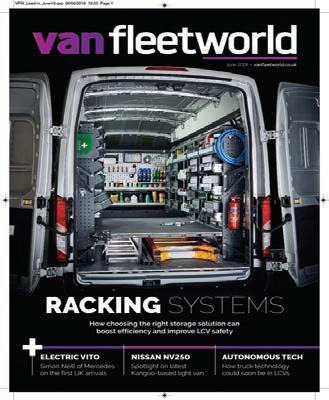

which include the latest in machine vision and artificial intelligence to iden tify and mitigate risky behaviour, expand on this fleet visibility. By intro ducing such preventative processes, not only can repair and insurance costs be minimised, but residual values for remarketing can also be optimised.

There is no doubt that for businesses that depend on a predictable and steady flow of new vehicles, the huge drop that we have seen in new vehicle production is a huge challenge. Planning ahead and consider ing different mobility solutions is vital to keep businesses moving.
We are working with a number of busi nesses and fleet managers who are look ing at how their vehicles are utilised to ensure the right vehicle is available at the right time. With changes in working patterns for example, a company car for exclusive use by one employee is no longer the best option for many organisa tions. And, indeed, the employee may not want the BiK penalty either. This is where long-term rental is a good fit.
Access to maintained and relatively new vehicles through long-term rental also reduces a company’s reliance on ‘grey fleet’. Employee-owned vehicles tend overall to be older, less fuel-efficient and more polluting, which in turn puts pres sure on the fleet budget. With fuel prices unpredictable, more up-to-date, less thirsty vehicles make commercial sense.

The fleet industry is still facing challenges as a result of the ongoing semiconductor shortage, playing havoc with just-in-time supply chains of modern manufacturing. Increased costs as well as order cancel lations clearly illustrate the knock-on effect of this shortage.
The fleet industry must look to find alternative solutions. As a business mobility provider, Nexus has a good view of supply for the largest volume of the rental market, so our account teams are able to ensure that if vehicles are avail
able, we can secure them for delivery to our customers.
Over the last two years we recognised a shift in strategy from suppliers that are moving away from supporting shorterterm hires such as one-day, one-way bookings. We’re helping combat this challenge for customers with our passen ger taxi service, Nexus Go, providing alternative means of transporting people on those shorter journeys. The platform gives customers access to an online taxi booking portal and by using Nexus’ rental booking platform IRIS, Nexus Go users can consolidate all billing and reporting in one place.
Simon Staton, client manage ment director, Venson Auto motive Solutions



Controlling costs is a constant challenge for the fleet sector, but to make savings and improve efficiency is critical.
Challenge fleet suppliers Shaking things up can be mutually beneficial for both parties. A genuinely effective partner is one that works with its client to ensure the fleet policy is the most appropriate for their needs. Importantly, make sure all ‘hidden’ costs are known, such as administra tion, maintenance, tyres and wind screen recharges.
Driver training is often a moot point as many drivers believe they don’t require training, but 22% of crashes are caused by driver inattention or distrac tion. A driver who performs a secondary task while at the wheel is up to three times more likely to crash. Implementing a driver risk assessment program coupled with either classroom or in-vehicle training will reduce inci dent rates and associated accident costs. Additionally, insurers often reward businesses that have an active driver training program in place.
But it’s important to remem ber that one size does not fit all. Our key advice is to know what being offered by a fleet manage ment company. A provider may look to be delivering the cheaper option, but ‘paper savings’ might not trans late into tangible savings.
With the UK government aiming to become carbonneutral by 2050, how busi nesses operate needs to change and consideration should be given to switching to greener alternatives.

Chargepass, from FleetMaxx, provides drivers with a single RFID card, which gives access to thousands of public charg ing points across the UK. Drivers tap the charge point to activate the charge when they’re on the road. An app shows the location of their nearest charging ports but there are no driver payments or expenses – we gather the charging activ ity through our portal. Your charging appears on a single monthly invoice to the fleet manager or owner.
Not interested in fully switching your fleet to electric? Our MaxxEV solution combines fuelling and charging costs (petrol, diesel, and charging) into one easily managed, monthly invoice. This will save hours of admin work to allow the focus to be on more important things.
Such is our confidence, we’re offering three months free, so fleets can try before they buy!
Sean Maddocks, sales director, UK and Ireland, Davanti Tyres.
As fleet managers know all too well, the importance of good-quality tyres is essential in keep ing vans and other commercial vehicles on the road. Choosing the right tyres for your fleet can improve efficiency and help alleviate financial pressures.
Tyre maintenance and daily tyre checks are also an essential way to allevi ate unexpected spend and financial pres sures. Aside from the visible checks fleet managers can do, such as looking for obvious cuts or splits, the two main areas of focus for maintenance managers are tyre pressure and tyre tread.
The resilience and agility of our sector has been on display like never before in recent years, helping to overcome the respective generational challenges presented by Brexit and Covid. Now facing the vehicle supply crisis and spiralling costs of living, the sector is again stepping up to the plate and demonstrating its ability to meet issues head on.
In amongst that adversity is the expectation that operators will continue to decarbonise their fleets in line with the nation’s net zero targets. To do this, operators need support and clarity.

While rising fuel and energ y costs are resulting in EVs having favourable running costs, those driving zeroemission vehicles at work are being left heavily out of pocket by an AER that is failing to keep in touch with eye-watering energy rates.
Some fleet operators are choosing to absorb that cost and reimburse at the real-world rate, but that approach is not sustainable in the current climate and will only slow the transi tion to electric vehicles. A fair and reflective rate will support drivers and operators alike at a time when it is most needed.




“There are large potential gains for fleet managers through electrification, but unfortu nately, we are seeing them squandered by some businesses through poor plan ning. Misguided decisions around EV acquisition and charging infrastructure requirements are leaving fleet managers open to unforeseen costs as their fleets grow.
“As the UK transitions from BEV LCVs to BEV HGVs, which depend on 150kW chargers, this race for access to power will only speed up, so it pays for organ isations to think ahead. As a global leader in powering electric vehicle fleets for the likes of Amazon, Tesco and DHL, EO Charging experts and the EO Cloud system can help.

July 2022
Model Units
Volkswagen T-Roc 18,938
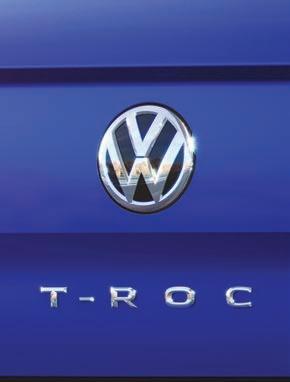
Dacia Sandero 16,632
Peugeot 208 16,317
Toyota Yaris 14,923
Dacia Duster 14,920
Fiat/Abarth 500 14,859
Hyundai Tucson 14,399
Volkswagen Golf 14,374
Opel/Vauxhall Corsa 13,992
Kia Sportage 12,698
With 2,000+
August 2022
Region Sales +/– (% yr-on-yr)
United States 1.13 million 3.9
Canada 128,000 -12.9
Western Europe 752,000 1.8
Eastern Europe 215,000 -31.6
Japan 288,000 -8.7
Korea 129,000 0.2
China 2.64 million 46
Brazil/Argentina 230,000 22

Two Swiss companies with large vehicle fleets (around 200 drivers each) recently decided to increase safety levels of their drivers though online driver training. One reason for the increased interest in the training concept –also offered by fleetcompetence – is the increase of ‘virtual’ workplaces, more familiar since the pandemic. It makes sense that companies choose a concept for driver safety where the employees don’t have to physically come together. The training can be carried out anytime and anywhere, without any organisational effort.

Experience shows that, after training, we all quickly fall back into our usual driv ing style, even if we have been taught new knowledge. The online training concept is therefore based on insights from modern learning concepts, namely: small monthly learning units, alternating the learning method and regularity of training.
With this approach, sustainable learn ing success is achieved, which leads to increased safety when driving.
The training is based on the individual level of knowledge and skills of each participant. To this end, the first step is to assess the driver’s ability to perceive risks in daily road traffic. This analysis includes real traffic scenarios, based on film sequences reproduced from the country where the company is based. As a result, the potentials of each individual driver are identified and, based on them, specific and targeted advanced training modules are assigned. A tailor-made training programme is created for each participant for the next 12 months. The employee can then complete these modules online, at work or at home, using all mobile media. They therefore have a constant reminder to drive safely over a longer period of time (pulse training).
And that is precisely the goal.
Beside the company’s responsibility to drivers, accident avoidance is also an important measure for reducing costs. At a time where fleet managers are confronted with big cost increases, it is also worth looking at these costs. For many compa nies, the share of insurance- and accidentrelated costs (deductibles, repair costs for own vehicle, rental car costs, premium increase due to accident or expert costs), i.e. the so-called ‘direct accident costs’, is about 15-20% of the total fleet costs. For this reason, insurance company Axa also recommends online driver training to customers with high loss ratios.
Our experience shows that the reduc tion of accident costs (and insurance premiums) quickly exceeds the costs of the training by a factor of two to three and therefore represents a valuable investment.
The Project EDWARD Week of Action 2022 takes place this month. Simon Turner, campaigns manager, Driving for Better Business, explains what you and your drivers need to know


Nowin its seventh year, Project EDWARD (Every Day Without A Road Death) is the UK’s biggest platform for showcasing best practice in road safety. It is backed by government, the emergency services, highways agen cies, road safety organisations and British businesses. It promotes an evidence-led, ‘safe system’ approach – the long-term objective of which is a road traffic system free from death and serious injury.
Driving for Better Business (DfBB) has supported Project EDWARD from the beginning and was very proud to be asso ciated with it when the campaign won a Prince Michael International Road Safety Award in 2018 – an award that DfBB itself won in 2021. With those who drive for work making up such a large part of the population – and the fact that commercial drivers and private drivers share the roads together – we’ve always seen Project EDWARD as an important national initia tive and worked hard to ensure that its objectives and messages stay relevant to fleet operators and business drivers.
Some of the challenges being covered will include a look at the often unrecog nised but substantial problem of drug driv ing among commercial vehicle drivers, the growing cohort of older drivers as many
stay in the workplace for longer and impact of technology on collision reduction, police enforcement and post-crash care.
Police forces across the country are increasingly working alongside other agencies on initiatives that are identifying large numbers of non-compliant business drivers and commercial vehicles. Often these specifically target poorly maintained vans, unsafe loading and drivers hours offences. The average fine per offence is almost £1,000 so it doesn’t take long for van drivers and owners to figure out that vans which don’t comply with the rules, regulations, standards and procedures can be a costly experience in fines, let alone additional costs for recovery and repair.
An action-packed week
Some of these activities will be featured during the Project EDWARD week of action (17-21 October) but DfBB is also now work ing with local authorities, police forces and road safety partnerships to help them engage local businesses through a regional Driving for Better Business programme. This includes making employ ers aware of just how easy it is to get caught up in these events, which happen all year round and could mean severe business disruption if your vehicle gets stopped and
isn’t allowed to continue due to overload ing, safety-critical mechanical faults or even an incorrectly licensed driver.
Here's what to look out for during the week of action:
Road Trip Kia has kindly lent Project EDWARD three EV6 GT-Line S models with long-range quick charging batteries for our national road trip visiting examples of good practice in road risk management. They are all finished in Runway Red and decked out in full Project EDWARD livery. Keep an eye out for them on your travels. National Safe Speed Day roads policing units across the country will be out in force in a coordinated programme of speed enforcement on Wednesday 19th Octo ber. Make sure your drivers know about it! Compliance events roadside compliance checks will be operating across the coun try focusing on commercial vehicles, and the National Highways ‘Operation Tram line’ cabs will be patrolling the motorways – these are unmarked HGV cabs fitted with multiple cameras to record driving offences and work in tandem with marked police cars and motorbikes.
Daily broadcasts highlights from each day on the road trip, along with other informa tive segments, will be broadcast as part of a 40-minute programme streamed on social media each evening at 7pm. Look out for segments featuring expertise and insight from our longstanding road risk management partners Webfleet, D.tec International and Drivetech.
I’m quite used to new cars turning up for a week, but it sometimes surprises me how much attention they get. In the case of the Genesis GV60, it was a lot although, admittedly not as much as it would’ve been if the lumo yellow (sorry, Sao Paulo Green) that was originally booked in had turned up.
Three different people thought it was an Aston Martin, the window cleaner at the chip shop was wowed by how quiet it was and someone nearly walked into a lamppost they were so distracted by what it was!
The thing is, it does look different – Genesis is trying to stand out, especially on the inside. That’s something to be applauded in an industry that’s fairly conservative.
There are a lot of noises to deal with in the GV60. Firstly there are the ‘hello’ and ‘goodbye’ chimes - complete with graph ics on the big driver display. Then there’s the usual reversing and seatbelt detection beeps that keep you on your toes. But the one that really took me by surprise was the speed camera warning alert. That’s partly because it kicked in when I was nowhere near a camera – on closer inspection it was set up to start 400 yards away from the thing!

Now, I welcome almost every form of safety technology, but this one seemed a bit too intrusive. Even though I was driving under the speed limit, it kept on going – cutting the radio volume at the same time – until I passed the camera! Needless to say, it’s now deactivated.
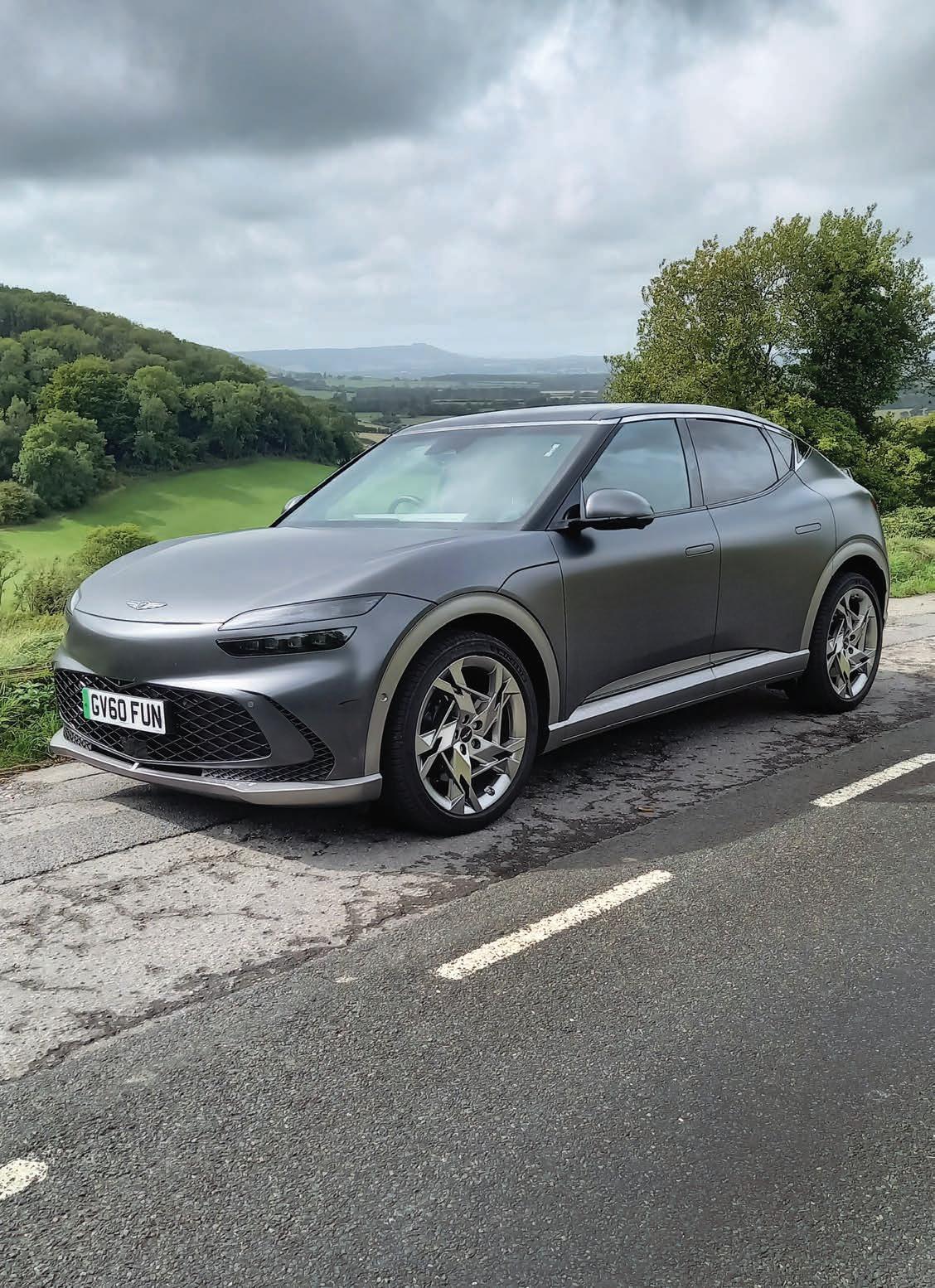
In the first of a new series, we spend time getting to know some of the latest fleet models a little better...
GV60 is the sibling of the Kia EV6 and Hyundai Ioniq 5, although the three brands have done an excellent job of masking that fact. And I’m talking dynamically as well as visually because the Genesis is aiming for the ‘sportscar’ category. Big wheels, a firm ride (certainly feels stiffer than the other two) and the highly entertaining ‘Boost’ button. In reality, it serves little purpose, but never fails to put a smile on the driver’s or passenger’s face. The highest accolade I can give it is the feeling I got when deploy ing the Boost was on a par with how I felt flooring a Bugatti Veyron many moons ago.

Very different cars, but a similar sensation that I was a little unprepared for!
Elsewhere in the interior, a minor frustration of the lack of physical buttons for regularly used items, such as the audio shortcuts. Changing stations can be a bit of a faff and involved more steps than necessary. It’s not a dealbreaker and is inline with how infotainment systems are going. But personally I’d favour a bit more simplicity. But I guess I should count myself lucky because if I was in one of the select models from a certain German auto motive Group, it would be total touchscreen and haptic-heaven!
Car interiors are often a tricky thing to get right when manufacturers deviate from the norm. So respect to Genesis for adding some lovely touches inside the GV60. The highlight is the revolving gear selector that goes into ‘decorative’ mode when the car is turned off. The glovebox ‘drawer’ is also a more practical option than many conventional items. Decent quality, too. Talking of quality, the GV60’s Nappa leather seats are also something to behold – comfortable, easy to adjust and get comfortable and supportive all around. The ‘comfort seat’ pack is £2,790 though, so you’d want them to be pretty good!
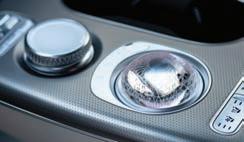
Depending on your situation, the importance of practicality can vary massively. With five in the Challen family – six if you include Bruno to the cock erpoo – it’s right up there. Thankfully, the GV60 passes the Mrs Challen test (she’s often the most critical of cars, but she was impressed) and the kids (and their friends) were quite taken with the Gene sis. I’ve seen some criticism of the boot which is, to a point, justified. It’s not the biggest, but then those batteries have got to go somewhere! Another minor gripe is the lack of a rear wiper – not great for a country that excels when it comes to rainfall.

The GV60 is a very impressive car – for all sorts of reasons. As a new entrant into the UK market, Genesis has had to endure some stick about initially arriving with ICE cars, but this one – the first EV in the lineup – ticks a lot of boxes. However, if drivers DO tick a lot of boxes, it will be pretty pricey – the base price of GV60 FUN (a dual motor Sports Plus model) was £65,405. Chuck in the options specced and it takes you to north of £71k. That’s a lot of money for a car in this class, but Genesis will argue that the quality is worth it. There is a truth to that – plus the fact that it looks a bit special – just ask the window cleaner…! JC
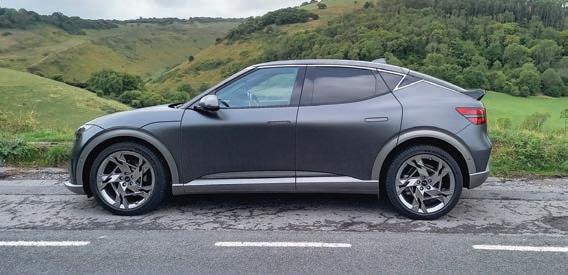



Ecoboost can be thirsty without MHEV to help it along.
MJ The last facelift did not really deliver the visual change many hoped for and interior is merely functional.
MW Some important safety equipment, such as automatic emergency braking, is not stan dard on the car.
JW Some cheaper plastics let the interior down and a Fiesta is rarely viewed as an aspirational product.
SH Once the UK’s best-selling car, 1.0 Ecoboost comes in a familiar package to most fleet users.
MJ Fiesta has broad appeal, deliv ering what most supermini drivers want or need. Well-equipped for the money and fun to drive.
MW The trusty Fiesta now has many trim levels, from Trend to
the SUV-inspired Active variant.
JW A strong dealer/service network helps with ownership. Consistent used demand makes easy work of remarketing.

SH No longer the default choice it once was and
SH Possibly ripe for discounts, given the life-cycle profile of the Fiesta, so could work out cheaper than it looks.

MJ In financially challenging times, cars in this class are a sensible alternative to lowermedium hatchbacks.
MW For anyone looking to
nition as a retail car than with fleets, so might not be on the radar for some.
MJ External differences over the previous generation are quite subtle, unless you choose a derivative with a contrast roof.
MW The interior isn’t as good as its competitors and the infotain ment system isn’t the best.
JW Cars are lower down the pecking order within Volkswagen Group, meaning some cheaper materials used in the cabin.
downsize or get a cheaper option, the well-equipped Tita nium is a good choice.
JW A constant since the 1970s and still one of the most easily recognised vehicle models of all time.
SH The model this Fiesta is based on was introduced in 2009, so the competition feels fresher.
MJ Rapid growth in B-sector SUVs has reduced volumes and Fiesta has slipped down the sales chart.


MW Fiesta has ruled the roost for so long, but other manufacturers are creeping up on Ford now.
JW Plenty to choose from in this segment. Not as competitive as it once was due to the rise of crossovers.
SH Best value of the Volkswagen Group small hatchbacks, and a bit more power per pound with this engine.
MJ There is no escaping that new Fabia-shared Polo platform means a dynamic ride and handling and decent cabin refinement.
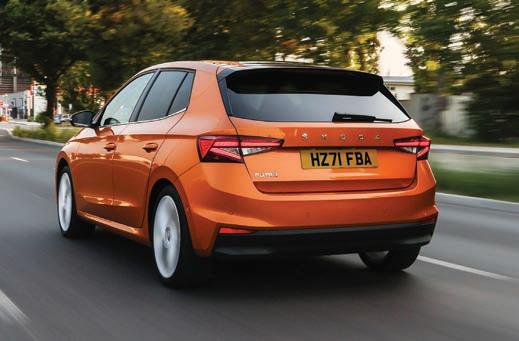
MW Fabia is practical, good value
for money and has massively improved exterior styling.
JW Composed and confident car with Volkswagen Group build quality and some interest ing features inside.
SH Seems to have better recog
SH Seemingly the cheapest to run of the non-hybrids, it could gain attention as living costs continue to increase.
MJ Growth in younger drivers of the Colour Edition models would lift awareness of the Fabia. The broader mix would also help lift RVs.
MW The Fabia’s impressive hand some looks will certainly attract new customers to the brand.
JW Škoda has been on a good run recently, with some great vehicles added to the range.
SH Perhaps still unfairly viewed by some as a budget option, which might make it difficult to get employees on board.
MJ Some people still have histor ical issues with the brand, but enough should recognise Skoda’s strengths.
MW Fabia has traditionally had fairly average RVs, when compared with its closest rivals.
JW Škoda is missing the badge appeal and status of other manu facturers here. Yaris’ MPG and RV figures hard to overlook.
Jon Wheeler > JW Head of vehicle valuation services, CDL Vehicle Information Services Simon Harris > SH Head of valuations, UK Vehicle Data Mark Jowsey > MJ Head of TCO AutoTrader Martin Ward > MW Manufacturer relationship specialist Strengths, weaknesses, opportunities and threats of four electric rivals are analysed by the Fleet World quartet of industry experts Ford Fiesta Škoda FabiaSH A great-looking small car that offers low running costs, compared with traditional petrol rivals.
MJ A great-looking car with excellent RVs. Plus, it drives well and handles better than you would expect.
MW The Yaris has it all: brilliant
fuel economy, reliability and good levels of standard equipment.
JW The best RV, BiK and MPG figures within this group. Yaris also offers distinctive looks and Toyota’s 10-year warranty.
SH Only offered as a hybrid in
the UK, which makes it look a bit more expensive than rivals.
MJ So different to previous generations, but many buyers who haven’t seen it won’t have it on their shortlist.
MW A bit cramped inside and interior quality is not quite as good as some of its competitors.
JW The gearbox is a chore to listen to and some of the interior plastics do the car an injustice.
SH Hybrid-only could be a draw for fleets seeking to reduce emissions but with worries over full EV.
MJ Toyota wants to be a brand with more global appeal and Yaris is a good example of that goal.
MW The Hybrid system is superb and so efficient – the car will inevitably attract new customers.
JW Jumping on the back of the GR version would boost the appeal of the standard Yaris to a wider audience.
SH Predecessor was lacklustre, so many people might not realise just how good the new Yaris is.
MJ A larger-capacity battery giving greater electrical assis tance may be the best plan to keep ahead of new cheaper Battery Electric Vehicles.
MW There are still many hundreds of thousands of small car drivers who will only drive manual cars.
JW Other manufacturers in this list are possibly seen as more desirable due to Toyota’s histori cally older demographic.
SH Pushes the Fabia hard on value, with GS Line priced against perceived lower grades on rivals.
MJ A very impressive car. Bigger, lighter and more agile than its predecessor, with good realworld economy.
MW A car that has always appealed to both the young and
old. There’s no reason that the new one shouldn’t continue with that tradition.
JW The most accomplished Corsa so far, helped by the Peugeot/Citroën underpinnings.
SH Doesn’t feel quite as
polished as the Peugeot models that it is related to, perhaps through rushed development.
MJ A more conservative exterior and interior than the Peugeot 208 and not quite as dynamic as some competitors.

MW Corsa no longer offered with bargain basement prices, has a confusing infotainment system and historically poor residual values.
JW The interior of the car really lets it down, especially consider ing those available in other Stel lantis products.
SH The Corsa has overtaken the Ford Fiesta as the UK’s best-sell ing car, so uninitiated drivers might be reassured by familiarity.
MJ Corsa needs to maintain an orderly approach to terms and build on the RV improvement
that this car has provided.
MW The new model is well equipped for its size, so looks a lot of car for the money.
JW The public sector has always been a great opportunity for Vauxhall.
SH High volume could have its downside in a lower resale value at de-fleeting time. A tricky balancing act for buyers.
MJ Just as Puma has taken sales from Fiesta, Corsa will have lost out to Mokka.
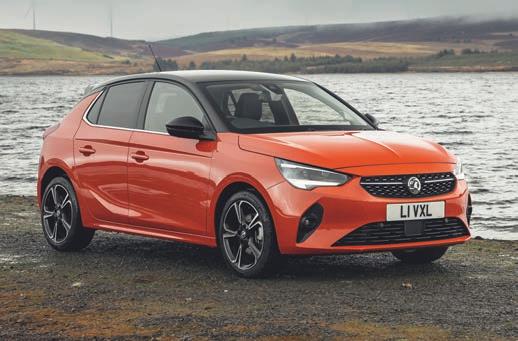
MW Plenty of competition now in this sector. Lots of manufactur ers want a piece of the action.
JW The competition within this sector is fierce and there is a question as to whether the Corsa stands out.
Toyota Yaris Vauxhall Corsa“The Yaris has it all: brilliant fuel economy, reliability and good levels of standard equipment”
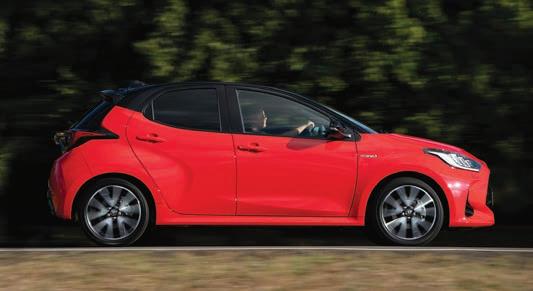
OTR: £22,520
P11D: £22,325
CO2: 92g/km
RV: 11,451 (51.29%)
BiK: 23%
SMR: £1,964

Fuel costs: £6,724
Insurance: £2,598
Finance: £3,014
NI: £2,318
VED: £450
Cost per month: £778
Standard equipment:
DAB, BT, USB
Voice control
Rear diffuser
Deadlocks
High beam assist
Options: Satellite navigation: £495
Rear parking sensor: £395
Panoramic sunroof: £495
OTR: £20,525
P11D: £20,280
CO2: 117g/km
RV: £8,707 (42.93%)
BiK: 28%
SMR: £1,722
Fuel costs: £8,424 Insurance: £2,358
Finance: £2,738
NI: £2,564
VED: £520
Cost per month: £832
Standard equipment:
DAB, Bluetooth, USB
Satellite navigation
Electric power steering Multifunction steering wheel Rear spoiler
ISOFIX front seat fixing
Options:
Heated seats: £535
Adaptive Cruise control: £315 Rear parking camera £665

OTR: £20,505


P11D: £20,260 CO2: 125g/km
RV: £7,408 (36.56%)
BiK: 29%
SMR: £1,594

Fuel costs: £9,014 Insurance: £2,487 Finance: £2,735 NI: £2,744

VED: £520
Cost per month: £889
4th
£20,490
£20,245
120g/km
£7,464 (36.87%)
£1,696
Standard equipment:
DAB, USB, online services
Satellite navigation
Lane departure warning
Rear parking sensors
Voice control Air conditioning
Options: Adaptive cruise control: £350
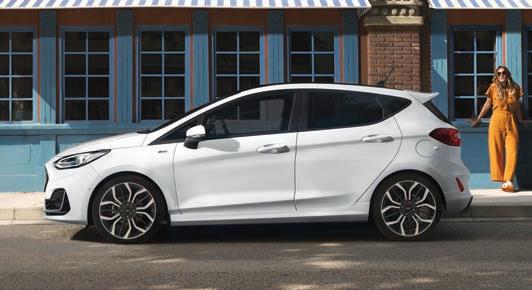
Heated steering wheel: £300 Wireless phone charging: £425
£8,859
£2,967
£2,733
£2,651
Standard equipment:
DAB, Bluetooth, USB Online services Collision warning
Front parking camera Lane departure warning Sport seats
Options:
Heated seats: £350
paint: £600
navigation: £500
Iis no secret grey fleets contribute significantly to the United Kingdom’s current climate issues. Grey fleets typically consist of older vehicles and are known to emit 3.6 million tons of CO2 per year. Switching away from a grey fleet is not a simple task and requires organisations to follow a transition process, but the transition can be simple with the right fleet management software. Utilising data from fleet management software in these four ways will make transitioning away from your grey fleet smoother:
Rental vehicles can be a cost-effective alternative for fleets with longer journeys. Rental software can work out the business case for using rental vehicles by analysing whole-life costs, rental charges, mileage, and more to get the most streamlined fleet, purpose-built for your operations. Operating an agile back-to-back rental, subscription or car sharing scheme are all good strategies.
A sophisticated fleet management software should have GPS and Telematics integration, so managers can monitor driver behaviour and address any problematic areas. Fleet management software can improve driver routes and scheduling, improving fuel usage while eliminating wasteful driver behaviours like speeding and idling. GPS tracking also advises drivers on the most efficient itinerary, spending less time tweaking and calculating their routes. Through these practices, fleets will optimise vehicle usage by eliminating any vehicles not being used.
Encourage the digitalisation of regular vehicle checks. Get drivers to provide vehicle maintenance records and inspections on their privately owned assets. The purpose of using fleet software is to have the data read ily available to see patterns quicker than manual data recording. If a driver digitally records vehicle faults, fleet software will automatically alert any faults. This ensures staff are using safe and compliant vehicles.
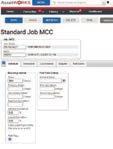

Data analysis can determine what mode of transport is best fit for business use. The right resources in terms of skills and equipment to be deployed allowing employees to carry out their job function effectively. Managers can undertake a retrospective analysis of how resources have been used to assist in acquisition strategies, usage plans, and to support the company’s CO2 reduction and sustainability policies.
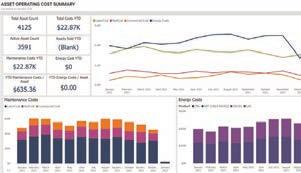

You may be wondering where you should start to eliminate your grey fleet. AssetWorks’ fleet management software, FleetFocus, is the first necessary step. To learn how AssetWorks products can help, visit assetworks.co.uk.

 Mike Gadd Managing Director, AssetWorks
Mike Gadd Managing Director, AssetWorks


The AA’s new business services director has a lot on his ‘to do’ list. And the former international athlete is looking to hit the ground running
Fleet is my past and I want it to be more of The AA’s future.
Before moving to The AA I was chief commercial officer at SMH Fleet, which was recently acquired by Kazoo. We were involved in fleet logistics, repairs and repatriation work, partnering with big leasing companies and OEMs. Prior to that I spent a lot of time at Lex Autolease, heading up account manage ment and then new business. In another previous role I was sales and marketing director at Toyota Financial Services UK and also spent time at LeasePlan as head of consulting.
There was a lot that attracted me to The AA. It’s an iconic brand that really did appeal. The company is at a really interesting stage of its development. In terms of business services I think we need to change our positioning as a supplier, so we are not just known as a breakdown provider. We’ve got to develop our propo sition more broadly into the fleet ecosys tem. It’s an easy thing to say, but because The AA is synonymous with breakdown,
it leaves you exposed to market demands. Beyond the next 10-15 years, you can see that we have driverless car technology and more electric vehicles, so the tradi tional breakdown model – through busi ness services – is likely to change.
It’s clear we need to act now. We’re looking to develop some of our other products and services and ensure they contribute more to our revenue line. For example, The AA is very conscious of the automotive market and changes to the OEM dealer model (the movement to agency) allows us to be more proactive in our support for OEMs – and dealer partners.
It gives us a chance to get involved with EV support, post-delivery to the driver. A lot of the early adopters knew their vehi cles inside out, but that’s not always the case now. For many it’s a work vehicle and therefore specific knowledge about EVs might not be high on the list of priorities. But we can educate drivers through AA Drivetech and are looking at the potential of online EV training when drivers start their journey with electric cars.
Partnering with industry is a big priority for us.
We’ve got a number of avenues where we can look to do more work with fleets. Beyond the driver training work, there is also our Prestige proposition. We can offer a service, maintenance and repair product through our network and we’re looking to develop that over the coming months. Specifically, we’ve got a lot of leasing company partners who we are working with. Those companies have also realised they need to do more when it comes to driver training on EVs, so hope fully we will be able to support them.
We’re still committed to breakdown. The core of our business for leasing companies is breakdown recovery because it’s so important for them. When a driver has broken down, we arguably represent those companies, because they have the relationship with the customer
We want to make sure we continue to deliver the SLAs and KPIs that we have in place. Beyond that, we need to give drivers excellent service, but also to make diffi cult situations as stress-free as possible.

every aspect of zero emissions motoring and Europcar is aiming to help businesses on the journey.
It makes complete sense. Every aspect of electric mobility can be tested; businesses can even switch between different vehicle types to understand what’s the right fit for their operations.
Decarbonisation is now on the agenda of most businesses, with fleet users facing pressure to lead the charge into cleaner, greener mobility. But this is a mammoth task when vehicle supply is limited, overall fleet operating costs are spiralling and the true effect of electric motoring – on drivers and their businesses – is an unknown.
A short test-drive, even if it’s for a week or more, doesn’t really deliver the insight businesses need to understand the true impact of adding electric to their fleet. What’s needed is real-world experience before making the big move.
Try before you buy Addressing this challenge, Europcar’s Long-Term Solutions give businesses and their drivers the chance to experience electric in real-world conditions before committing to lease or outright purchase.
Before making big fleet decisions –that will have big financial implications – it makes sense to ‘test’
Available for a minimum of 3 months with no upfront deposit and commitment free, the Europcar Long-Term solution when you select an EV includes:
• Comprehensive vehicle handover and charging instructions support
• Charging cables
• Shell Recharge card and app –providing access to over 10,000 publicly accessible charge points across the UK
• Access to Tesla Superchargers for Tesla rentals
• The option for CO2 reporting for valuable insight into emissions reduction
Plus, through its partnership with Shell Recharge Solutions, Europcar is offering a range of home, roadside and workplace charging solutions.
One size doesn’t fit all Europcar is adding vehicles that span the majority of business motoring use cases to give fleet managers the chance to genuinely put low and zero emission motoring to the test, all available as part of the Europcar longterm rental solutions.
The latest additions include several hundred Tesla Model 3 for long-term business rental. The LEVC van and Mercedes-Benz e-Vito have also been added to the commercial fleet with the Mercedes-Benz eVito van available for short demo test-drives on request.
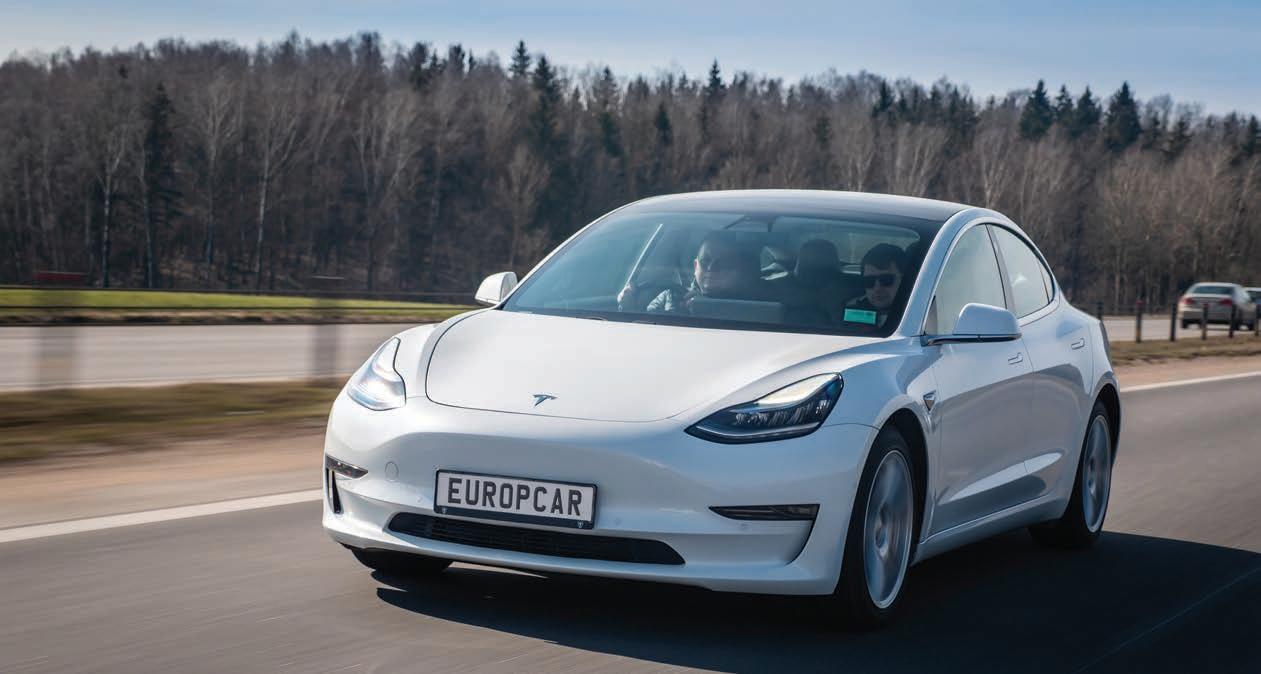
The continued addition of new electric models to the UK fleet underpins the Europcar ‘One Sustainable Fleet’ programme which aims to have 20% of vehicles in fleet emitting less than 50g CO2 / km by the end of 2024. The Europcar branch network is also rapidly being charged up for the future, with plans to expand the infrastructure to locations in key business locations by the end of 2022.
To find out more about how Europcar can help your business transition to zero call 0371 384 0140 or visit

What’s needed is real-world EV experience before making the big move.
New car supply has been a major issue for fleets ever since the onset of the pandemic. Production has been affected by everything from material shortages to the semiconductor crisis to component production in Ukraine.
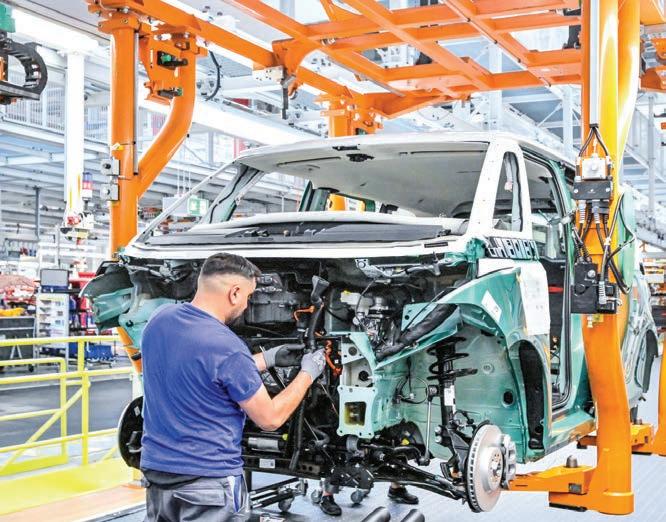
Worryingly, the situation may be worsen ing. Feedback from AFP members shows supply issues are persisting – at best, supply is patchy and at worst, it’s non-existent.
This situation is, of course, a worldwide problem caused by worldwide issues. However, it is also one that is causing increasing operational disruption for busi nesses in the UK. Some fleet managers are telling us that drivers are having to go through the process of choosing a new car half a dozen times before finding one for which a manufacturer will even provide a production slot – and that date is likely to be a year or more away. It’s also a common occurrence to see repeat cancellations once orders have been accepted.
Other manufacturers have closed their order books either completely or for certain models. In general terms, PHEVs have become very difficult to acquire as production is seemingly being skewed away from them towards EVs, probably because of CAFE regulations.
Even when cars can be obtained, they are often being delivered without meeting the order specification. The wrong colour is fairly commonplace, but equipment is often missing – parking sensors seem to be a particular issue – with no resulting adjust ment in price. These issues exist for petrol and diesel cars but can generally be doubled for EVs.
What should fleets do in these situa tions? Essentially, they have little choice but to continue operating their existing cars for as long as possible but with new car short ages now in their second or even third year,
there is increasing pressure on managers.
The shortage situation creates two sets of problems. The first is that company cars are generally becoming older and difficul ties with keeping them on the road in a cost-effective manner increase over time. Some are now being operated into their fifth year and will probably still be on the fleet in their sixth because they cannot be replaced. These are largely unchartered waters in maintenance terms.
The second is an employee satisfaction issue. Drivers who are keen to move into EVs but simply cannot get hold of the right model are having to continue to pay benefit in kind on ageing and increasingly unattrac tive diesel models, with no solution in sight. It’s costing them quite a lot of money. There is no easy answer to this situation and it does cause some disruption.
One trend we have seen that can some times help is that AFP members have become adept at swapping information about new car availability. One of the key advantages of being part of the AFP is the ability to network extensively with fellow professionals and there is certainly much conversation taking place at the moment about when and where vehicles are becoming available. This is not a solution in itself but does mean that you can keep track of the latest market situation.
Ultimately, it is very difficult to know when the underlying supply issues that are making new cars so difficult to obtain will start to noticeably improve. However, with the size of the order backlog, we don’t expect to see any real change for at least a year or probably longer. This is a problem that is not going away any time soon.

The ongoing perfect storm of problems has left fleets wondering when the car production issues will end
Paul Hollick chair, Association of Fleet Professionals
“What should fleets do in these situations? Essentially, they have little choice but to continue operating their existing cars for as long as possible”




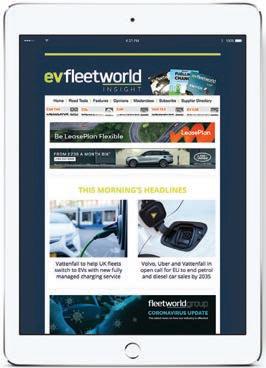




Fleet has grown almost in proportion with retail in 2022. Total figures for this year –to the end of July – saw a year-on-year increase of 76% to just over 28,000 vehicles (28,149). Of that, feet accounted for just under 14,000, or around 45% of the overall business. For us, that is where it needs to be. We’ve grown as a manufacturer over the last three to four years and the fleet element has also grown, which is always the goal.
We are conscious about how we do the channel mix – we don’t want to be overex posed in one area of the business or another. So, for example, everything on rental is done on buy back, we don’t do any risk rental. Then we manage the vehi cles coming back and those prices, which obviously helps with residual values.
Our RVs have improved over the past
three years and that’s not by happened by chance. We’ve done a lot of things in the background to help not just how we go about our business, but also engaging with the main RV setters. Right from the outset, we’ve been open, honest and transparent with them about what we’re doing and the way the business is going. They obviously like what they see because we’re getting those sorts of improvements. I also share with them, on a regular basis, our used car value achievements, which helps our perfor mance on the used car market.
What ’s the goal with your RVs from here? Further improvements, or have you reached a ceiling?
We have adopted – and will continue to adopt – an open engagement with RV setters. With MG4, for example, they got to see early prototypes and the further evolutions of the car, culminating in the
final production version. And each time we met with them, we gave them a busi ness briefing and an understanding of where we’ve gone as a business and our plans for the future. They now under stand that we’re a global organisation and very much here to stay.
Fleet is an important channel for us and when you split it up and we were actually focusing on, good long-term, true fleet business. That’s obviously good for used car values to down the line. So, it is a continuous dialogue that we have with them. And we plan to continue doing that, because it’s really important for us.
What is the potential for the next 18 months for MG in the fleet market?
I think the biggest opportunities for us are come from the new products we’re bringing out being EVs, such as MG4 as well as the facelifted MG5, which is
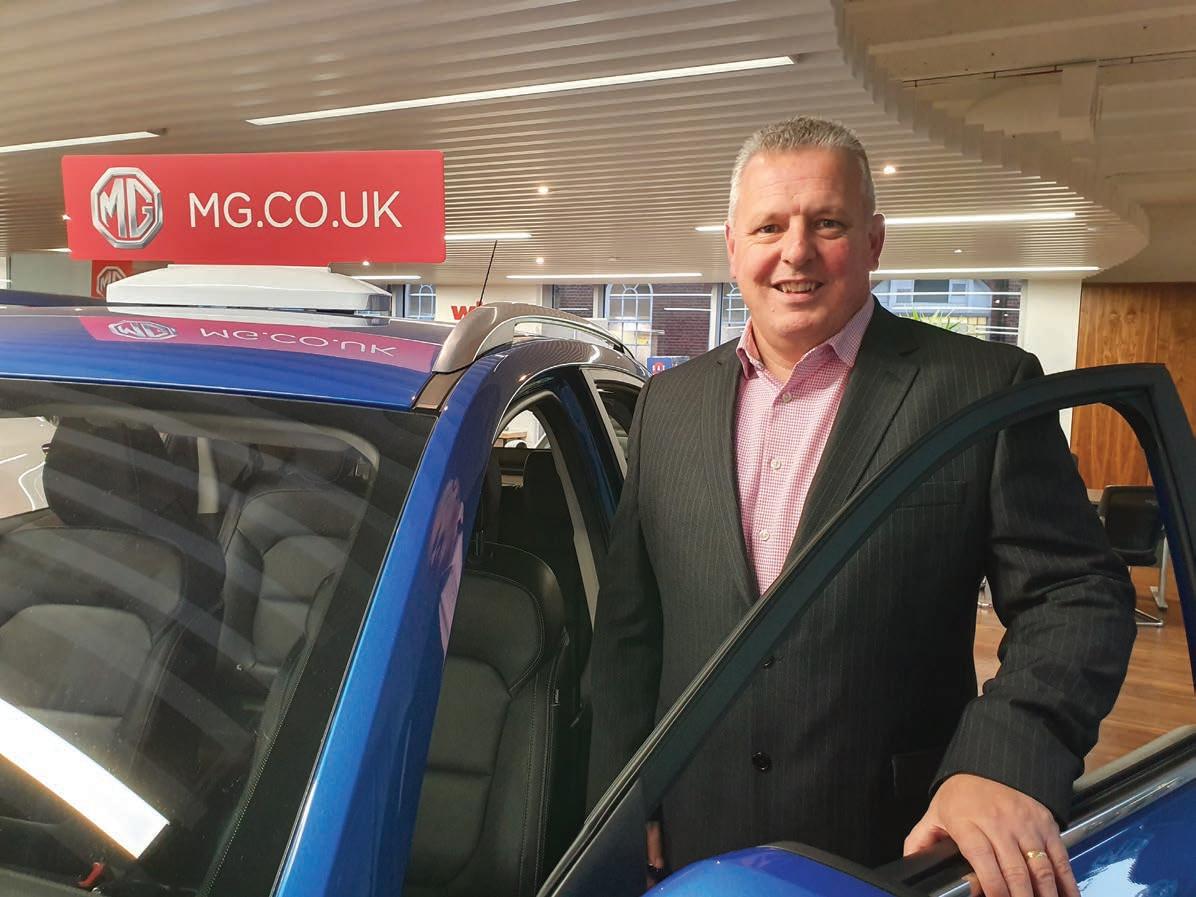 MG’s numbers – sales and RVs – are on the up, while new and revised vehicle models are attracting the attention of some major businesses. Head of fleet, Geraint Isaac, tells John Challen the secrets to the company’s success
MG’s numbers – sales and RVs – are on the up, while new and revised vehicle models are attracting the attention of some major businesses. Head of fleet, Geraint Isaac, tells John Challen the secrets to the company’s success
almost like a new car! So we’ve got three full EVs and a plug-in hybrid now. So, from a fleet perspective, we’ve got four vehicles we can offer that are tax effi cient, environmentally friendly and very price competitive.
We believe our models lend themselves to private and public sector opportunities such as salary sacrifice – and these are the areas of business that my team are now targeting. Meanwhile, leasing was a big focus area for us last year in terms of growth and it continues to be this year. By the end of July this year, we’d exceeded the volume of leasing we had for the whole of last year. We’re showing consistent growth in certain areas and targeting those areas. I told the team to focus on avenues to target for business and we’ve attracted some big blue chip organisations and won some big business with MG5. With the new models that are coming – and their levels of practicality, design and technol ogy – it’s an exciting period.
Does that success and interest in the brand surprise you?
Yes and no. To a certain extent yes, in terms of how quick it’s come about. But the MG brand has been around for such
a long time and people remember MG its previous incarnation. So the brand iden tity and brand awareness is still really strong. And when you look at the prod uct’s build quality, standard specification and price compared with direct competi tors, there’s a distinct advantage.
How important are PHEVs to MG?
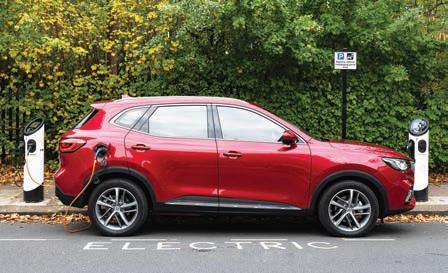
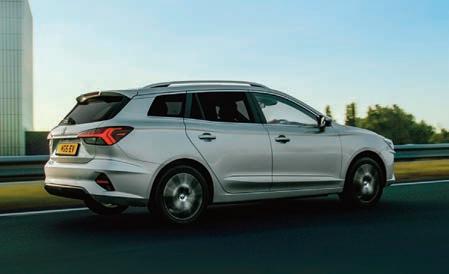
They are vitally important right now, because drivers have two main trains of thought. You’ve got an ICE driver wanting to convert to EV, but who isn’t quite sure, so they go for a PHEV to get a bit of both worlds. They benefit from low emissions and BiK, but they are still not convinced EVs are the way forward. Then there are also high-mileage drivers who feel EVs aren’t for them. But PHEVs, such as our HS version, are a stepping stone where they can get a feel for them and under stand the characteristics.
MG was the fastest-growing non-solely EV brand in 2021. Same for 2022?
Fastest growing Manufacturer. We cannot state we are the fastest-growing manufacturer overall this year, as a few smaller volume brands have beaten us on YTD figures. However, we are clearly the
fastest growing in the Top 15 and our EV mix is 23% compared to the market aver age of 14% of those manufacturers that sell both EV and ICE.
What the potential for MG4 with fleet customers?
We’re really excited about MG4 because there are so many different segments in the fleet market that we know this car can lend itself to. Not just in range, but the capabilities – it’s a versatile hatch back, so it’s got the flexibility of folded down seats, but also lots of cabin space if you want to carry luggage. The cabin space means four or five adults can sit comfortably. So, if it’s your company car and you’ve got small family, you could actually run it as your own car.
I had a conversation recently with a major fleet organisation that is now review ing its policy. It started looking at plug-in hybrids, but is now talking about going full EV, certainly in three of its five bands. With ZS EV, MG5 and MG4 as all electric options, there is a lot of choice and scope. In fact, in the case of the MG4, because of the price point and what it offers in terms of driving range and size the company can offer it in all three bands.

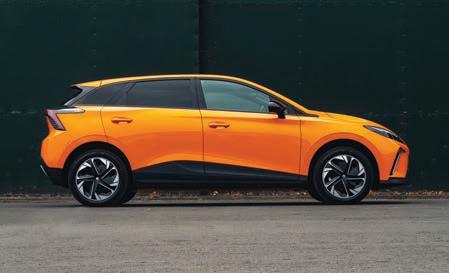
“Our models lend themselves to private and public sector opportunities such as salary sacrifice”
Geraint Isaac, head of fleet, MG Motor UK
Number of models 7
Best fleet seller MG5.
How many total cars sold last year 30,600.

Next model launch MG5 Facelift – November 2022
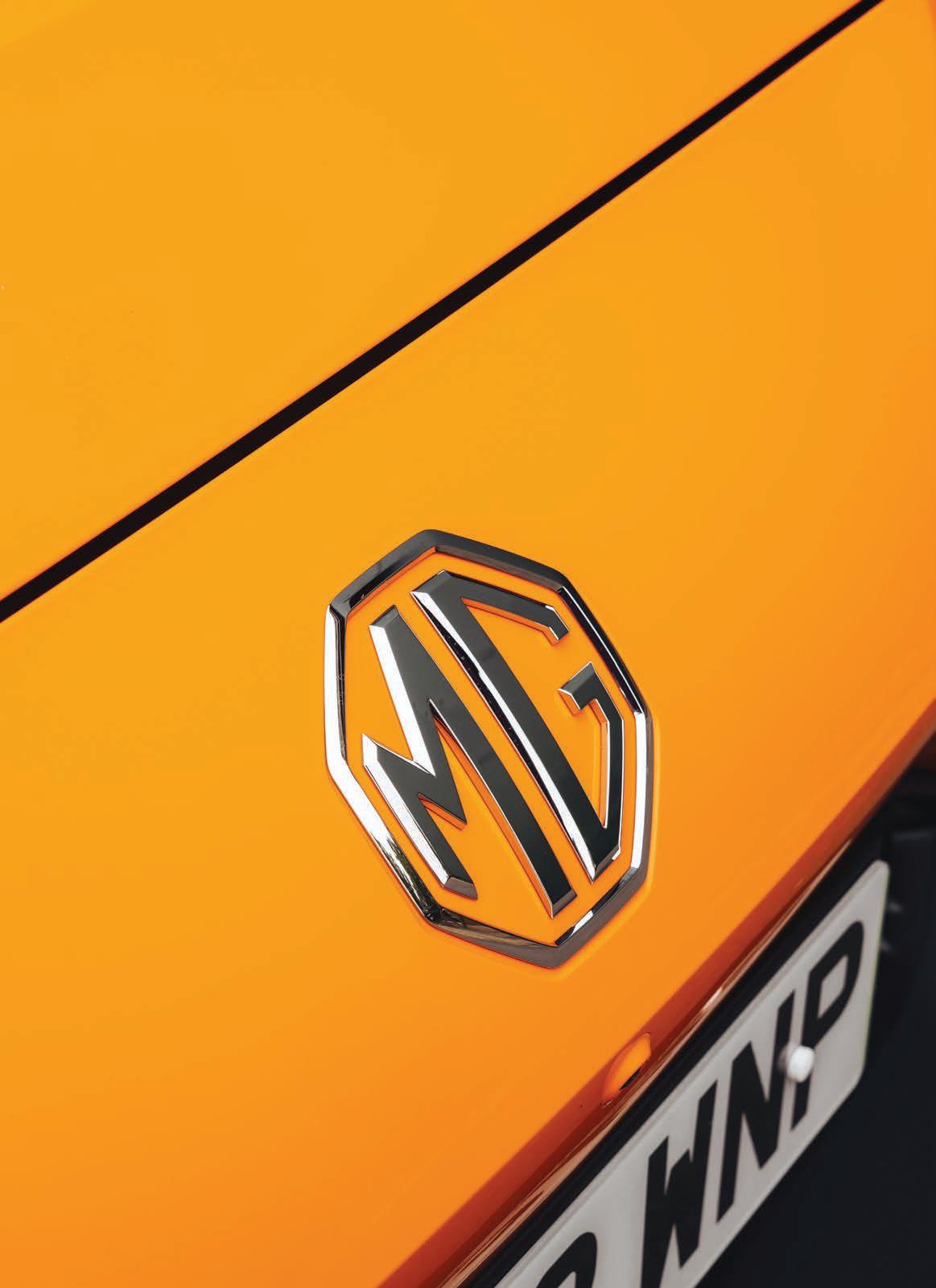
MG sponsors the Welsh FA. In a recent photoshoot and drive with some of the squad, Gareth Bale commented that he was so impressed with the new MG4, he’s considering buying one!
To continue our growth in the fleet market by offering the products and services for all sectors. With the new product offen sive we have over the coming years, the future is exciting.

Turn over for the Fleet World road test of the new MG4
For nearly 20 years, Isaac has spent time at various manufacturers, including Vauxhall in a regional fleet role, before joining Hyundai. He stayed with the Korean manufacturer for nine years, starting out in another regional position before being promoted to have overall responsibilities for residual values and and remarketing. For his last 18 months he was given the added responsibility of Hyundai’s rental business.
Isaac joined MG three years ago, when he was given the remit to grow fleet! Firstly holding the title of national fleet sales manager, he became head of fleet just over a year ago. Within that role, he manages a team of three fleet professionals in the field.

A s brand revivals go, MG takes some beating. Having returned to the UK with a tiny dealer network and small volumes of the TF sports car, a decade of foundation-setting and product R&D are paying off. It’s on track to reach 50,000 registrations in 2022, compared with 30,000 last year – and the MG4 electric hatch is a catalyst for further growth. Predicted to be the best-seller, it’s a foothold in a high-volume segment with big opportunities in the contract hire and leasing sector.
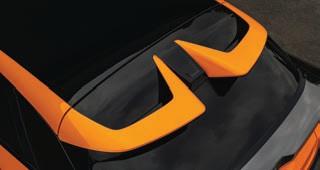
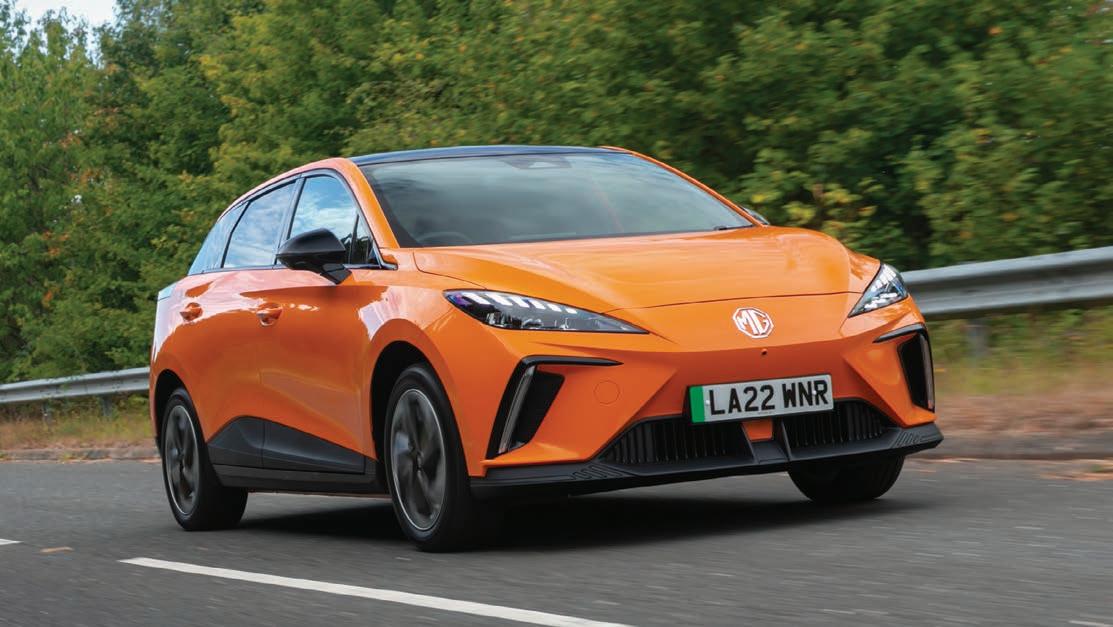
Those ambitions have meant starting from scratch. MG4 is the first product to use the company’s new scalable electric vehicle platform, which will eventually underpin products from superminis to large SUVs. It’s the usual ‘skateboard’ layout, with an under-floor battery and motors at the rear or both axles, and a focus on affordability. By using cheaper lithium-iron polymer cells in the 51kWh Standard Range (218-mile) battery pack, the line-up starts at £25,995 – that’s competitive with a mid-spec Volkswagen Golf, let alone an ID.3.
MG reckons demand will be similar to other models, weighted towards the 62kWh Long Range battery, which offers up to 281 miles for the SE trim
(£28,495) or 270 for the top-spec Trophy (£31,495). Both are generously equipped, with notable features includ ing vehicle-to-load capability – a threepin socket that runs off the battery – but the Trophy gets luxuries like fauxleather upholstery, more colour options and 360° parking cameras for £5,000 less than the ID.3.
It’s headline-grabbing value that could excuse some shortcomings, but there’s no obvious sense of cornercutting here. The MG4 is quiet at speed, rides well and, with 201bhp, a low centre of gravity and short overhangs, it’s surprisingly good fun to drive too. Throttle responses are smooth at low speeds and the same is true of the regenerative braking, even in the most aggressive of its three settings. A singlepedal driving mode would be useful for inner-city driving, though.
MG also scores well for usability. The car powers up with a press of the brake pedal, shuts down as the doors lock. The programmable steering buttons, which operate useful features such as driving modes, regenerative braking settings and the 360° cameras, are a clever feature. It’s deceptively large inside, with a marked step up in material quality and
an infotainment system that feels like a two-generation step forward compared to its lag-prone predecessors.
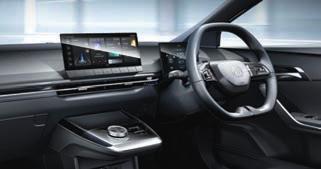
Importantly, it should make going electric relatively painless. Long Range versions get the more common, more expensive nickel-manganese-cobalt battery, which offers more power, higher efficiency and slightly faster charging. MG’s claimed efficiency figures seem realistic on test, and a 10-80% charge takes 35 minutes and restores roughly 190 miles of range. That’s plenty to get between rest stops.
Affordable, practical and fun to drive, the MG4 says as much about the strength of the electric vehicle market as it does about MG itself. Factor in next year’s 329mile 77kWh battery option and 443bhp high-performance model, and this segment’s newest nameplate makes a strong argument for looking beyond the usual suspects.
T
here’s no doubt that Mazda is setting its sights high with its latest SUV, the CX-60. The company’s largest product to date, the CX-60 is gunning for Audi, BMW and Mercedes-Benz, representing a shift in positioning for the brand. Further down the line will be the CX-80 bigger brother but, right now, the latest SUV is setting out to convince drivers that Mazda is the right choice for plug-in technology, married with high levels of interior luxury and exterior good looks.
Drivers get a choice of three model lines: Exclusive-Line; Homura and Takumi. All three grades can incorporate two option packs (Convenience and Driver Assistance – £1,000 each), while a Comfort pack is available on the base Exclusive-Line model cars.
Clearly there’s a lot of competition in the SUV arena and it’s a sector that now accounts for 70% of Mazda’s sales (up from 2% in 2012). Therefore, there is a high level of quality and luxury throughout each of the grades, in order to tempt drivers into the CX-60. Every model, for example, gets heated front seats, dual-zone climate control, head-up display and a 12.3-inch central infotainment display screen.
Move from Exclusive-Line to Homura and the visual differentiators include
body-coloured wheel arches, a honey comb grille and 20-inch black alloys. Inside, there’s front seat ventilation, heated rear seats and the option of a panoramic roof (also available as an option on the range-topping Takumi). Add in the Convenience Pack and drivers will get privacy glass and a 360° camera.
which works with a 173hp electric motor and a 17.8kWh battery.
The result is a total output of 323hp and 500Nm of torque. Those numbers mean that the CX-60 isn’t just the largest roadgoing model Mazda has created, it’s also the most powerful. However, when used efficiently, the CX-60 can return 188mpg (WLTP) and emits just 33g/km of CO2
The Takumi adds in more chrome elements on the outside, as well as colourcoded rear mirrors. A black bar radiator grille also makes these cars stand out. Inside, the Takumi’s attention to detail is most apparent with the materials. Maple wood and Nappa leather feature, alongside traditional Japanese textiles and stitching techniques. It’s a nice touch that creates an authentic vibe throughout the cabin and reminds drivers of Mazda’s heritage as it moves into new areas with its vehicles.
While the smaller CX-5 is slightly hampered by a lack of a hybrid, in the CX60 the technology is front and centre. The petrol-electric powertrain comes in the form of a 2.5-litre four-cylinder engine,
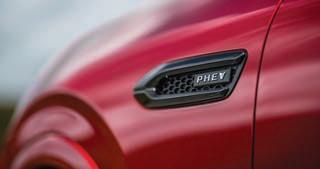

As long as they keep to under 62mph, drivers can eek out just over 39 miles of electric-only driving, according to Mazda. Driving the car in varied conditions, our test car almost delivered on the promise. In reality, we covered around 38 miles before the petrol unit kicked in.
On the road, the big Mazda does feel every bit of its 4.7-metre length, but body roll is minimised and it’s good fun to drive, helped by precise steering. But the ride quality could be better and rivals offer more EV mileage, which could be a deal-breaker for some drivers.

WHAT IS IT? SUV
MUCH? From £43,950
188mpg
33g/km
Key fleet model Homura
Standard equipment; driving dynamics
Not as refined as
7-word
“The high level of quality and luxury will tempt drivers into the CX-60”The Japanese
has gone big with its plug-in hybrid technology, finds John Challen
Inspired by the likes of the Saab 92 and Ford Corsair, the Ioniq 6 is described by Hyundai as an electrified streamliner. Not only that, but it also offers a ‘Mindful interior design’. In normal jargon, it’s a sleek-looking saloon (drag coefficient: 0.21Cd) that offers a vast, yet simplistic, interior. Don’t be fooled by the retro looks, though – it’s a tech-fest inside and out.

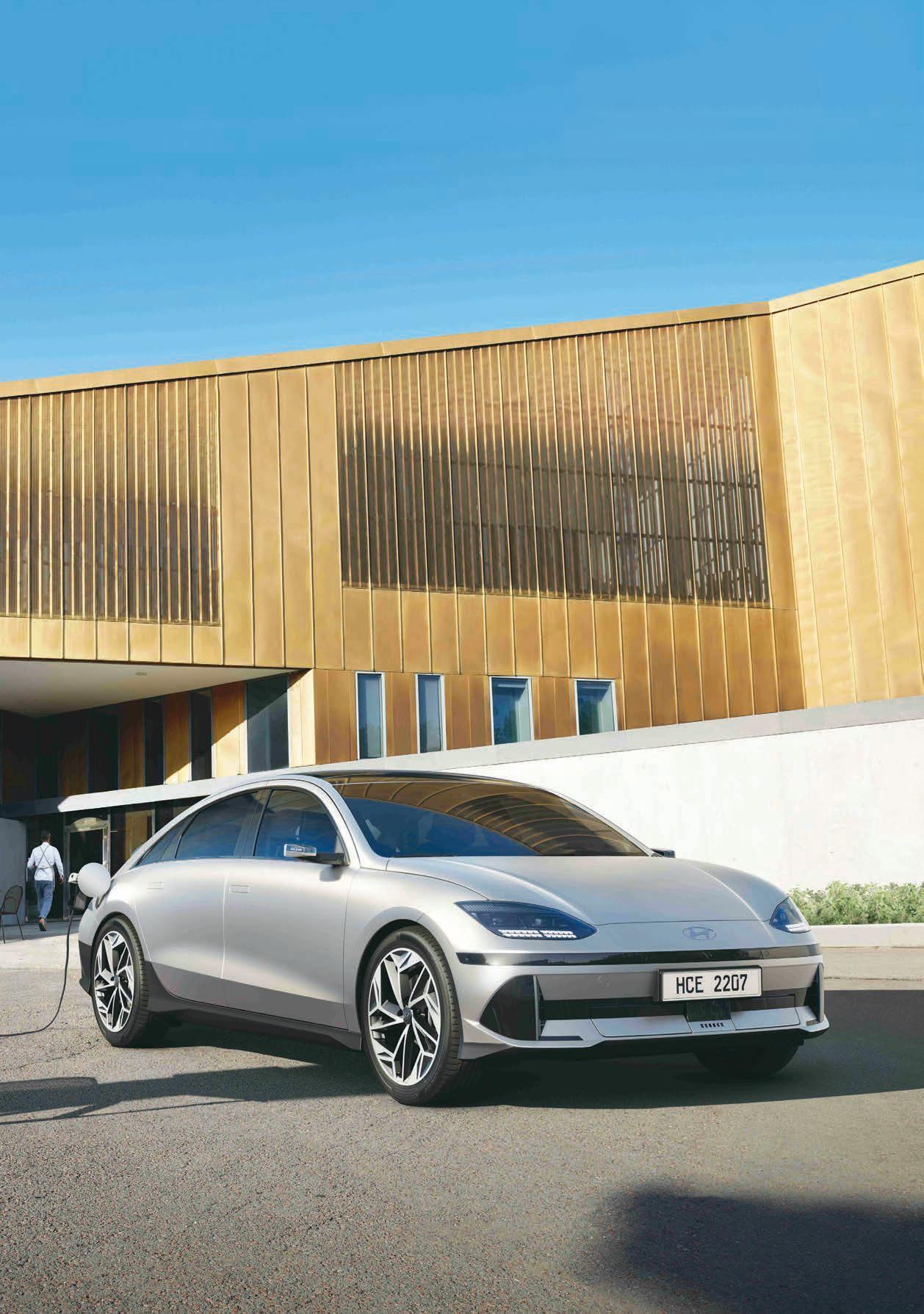
The Ioniq 6 boasts ‘EV Performance Tune-up’, which allows drivers to tweak steering effort, motor power and the sensi tivity of the accelerator pedal to their specific requirements.

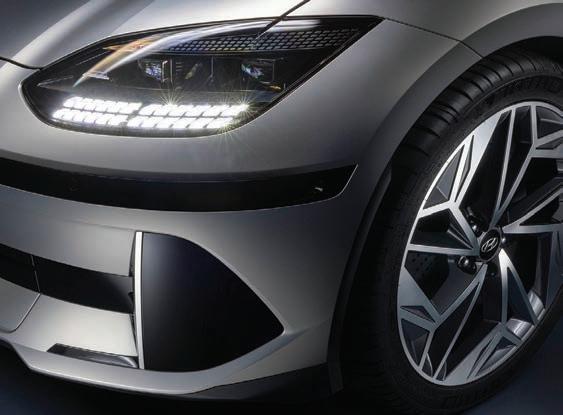
Inside, drivers can personalise the lighting – with a choice of 64 colours – or choose ‘speed syncing’, which apparently adds more ‘emotion’ to the driving experience.
One of the reasons that Hyundai’s Ioniq 5 was such a hit was thanks to its retro looks, combined with a forward-thinking interior and powertrain setup.
The Koreans have taken note and carried on this approach with the ‘6’ in a luxurious package that is sure to appeal to many. Loads of space inside is a big plus and the energy economy figures will also make drivers and fleet managers take note.
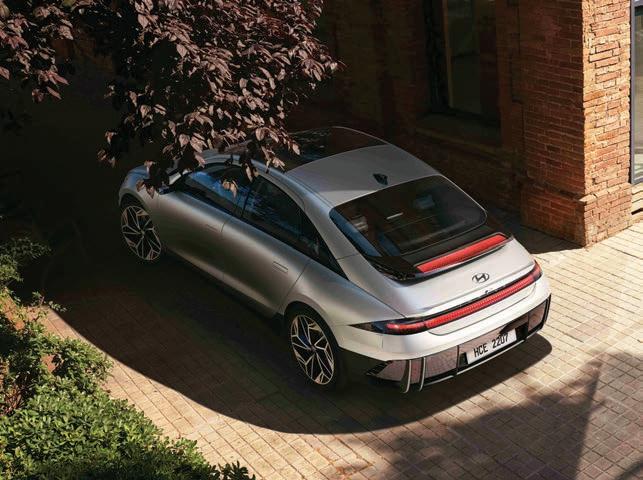
The interior and exterior teams worked together to stretch the wheelbase as far as possible – 2,950mm – to maximise interior space. The front seats have been made 30% thinner than those in comparable models, with no compromise in comfort, Hyundai promises. The interior is spacious as functional, with optional ‘relaxation comfort seats’, while the centre console has been designed to comfortably fit a laptop on, allowing drivers to work while they are charging or out of the office.
Claiming to be one of the most fuel-efficient cars on the market, the Ioniq records a WLTP-estimated energy economy of 14kWh/100km and offers a maximum range of more than 380 miles – a huge increase on the Ioniq 5. There’s a selection of drive motors and battery packs avail able for drivers, including a 77.4kWh battery, which can be mated with two electric motor layouts – either rearwheel drive (RWD) or all-wheel drive (AWD). The top-ofthe-line dual motor setup is an AWD option producing a combined power output of 320hp and 605Nm of torque.
As one door closes, another one opens. Or, in the fourwheeled terms of the Fleet World long-term garage, as the Peugeot 508 PSE leaves, a 508 GT arrives.
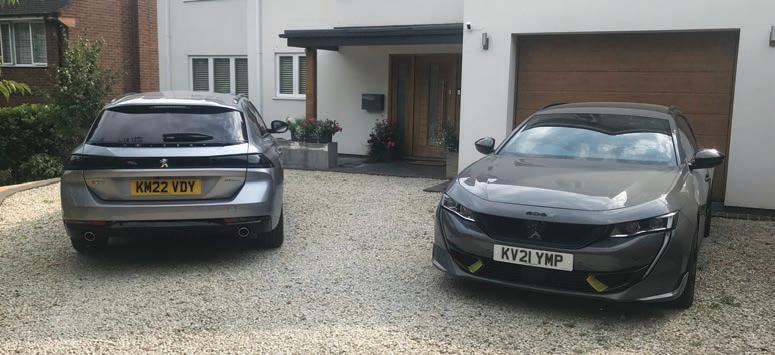
Our three-month stint with the 508 PSE was certainly a memo rable one, for both all the wrong and the right reasons. Nobody, not even Peugeot, would pretend that the flagship 508 PSE was a typical business car,
but as my staggering 98.4mpg average fuel economy showed, with judicious and regular charg ing, it’s not beyond possibility that the plug-in hybrid technol ogy can work for you – even if it’s more focused towards perfor mance than ultimate economy.
The PSE was also a pretty respectable driver’s car too, it’s just that the combined nature of both a family car and the plug-in hybrid
tech meant that the opportunities
flex those driving muscles were somewhat few and far between during our brief tenure.
With the arrival of the 508 GT however, one element of the PSE that I certainly won’t miss though was its ride quality. As I’ve said on
P11D £55,795
BiK* 14% I £131 (20%) /£262 (40%)
ECONOMY 138.9mpg/26e-miles
CO2 EMISSIONS 46g/km
ON FLEET 98.4mpg
18s on the new GT), the differ ence in ride quality was immedi ately obvious for the better.
Yes, we’ll miss the PSE’s headturning looks and styling, but the GT’s comfort levels are already making up for that (full first report in the next issue). Aside from a few details and less interior comforts such as massaging or heated front seats though, the inside is much the same. Our first stop however will be to our local Peugeot garage as the GT’s Apple CarPlay isn’t working and the entire touch screen has already frozen on a couple of journeys. Fingers crossed it’s a quick fix.
Nat BarnesP11D £36,950
BiK* 37% I £228 (20%)
The CR-V has already left us but it’s a car that grew on me the longer it was here. Firstly, the fuel consumption steadily improved, reaching some 43.5mpg by the time it went away. By then it had accumulated 6,368 miles, having been with us over the summer.
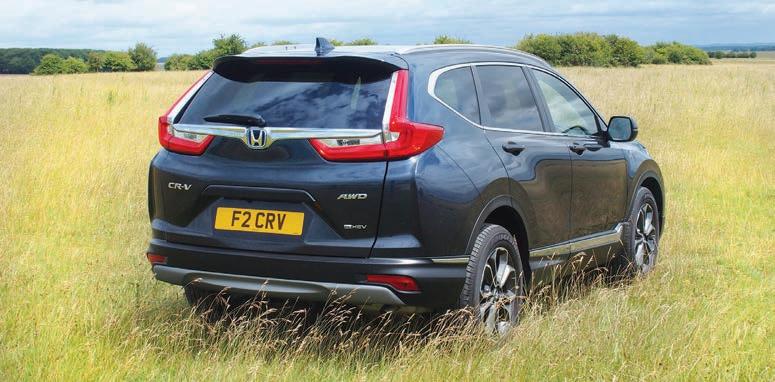
A holiday visit to the west of Ireland put that long travel suspen sion to the test on the poorer
secondary roads of Ireland. The Honda was a very comfortable car to travel in with three aboard and a fair amount of luggage. We had managed to accumulate an extra couple of bags from my older son and daughter who were both flying to Ireland and didn’t have space to carry all they wanted. I was grateful for the large boot and folding rear seats.
I eventually sorted out the tyre pressure warning reported previ ously, having reset the system, which was fairly straightforward. While the hybrid system works well, the engine serves mostly to drive the electrical generator and provide electrical power to the driven wheels. The four-wheel drive system would automatically route power to the wheels that
the system felt needed it most.
The downside was that if you put your foot down, the engine revs away, a bit like it would with a CVT system. The Honda’s iVTEC four-cylinder engine makes a pleasant noise, but it sounds as though the car is working hard to accelerate. None of this helps the fuel consumption despite the hybrid system and there are parallel hybrids such as the system Toyota has refined that are more fuel-efficient.
It’s a Honda though, which means it is well engineered, while the spacious body provides comfort for five adults.
John Kendall
model have gone down well, including the race blue metallic paint and the 16-inch black metal lic-painted alloys – which I caught a passer-by clocking the other day.
Our 95hp 1.5-litre TSI version has proved peppy, great at pulling away at junctions and still good for in-gear acceleration.
A
lot of miles have passed under the wheels of our Fabia, which now heads back to base after showing its skills as a trusty work stead and, as our coverage on the Fleet World website will attest, as a practical family car.
Over the last six months, we’ve put its versatility to the test on several family holidays where it’s proved very accommodating. The fact that at least one passen ger compared it to family hatch backs without realising it officially

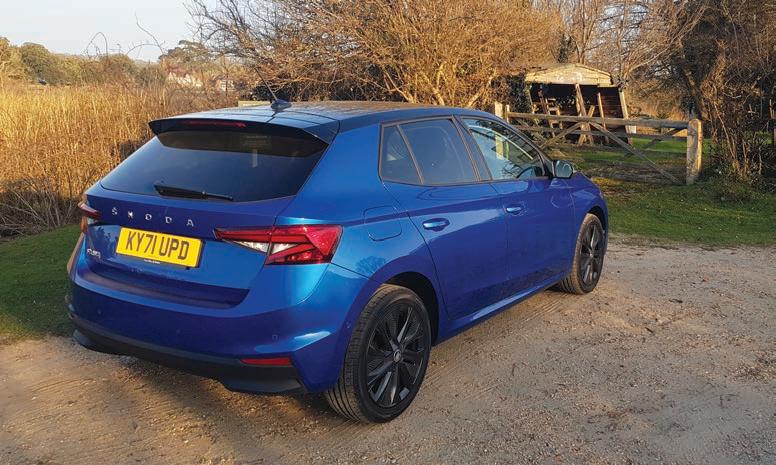
sits in the class below was rather notable. From a driver’s perspec tive, the Fabia has also been comfortable and refined to drive.
But this very likeable supermini is not all focused on practicality and the design flourishes on our
Fortunately, in the case of the iX3, BMW is literally spelling it out, with a handy re-minder on the Bpillar of where the EV came from.
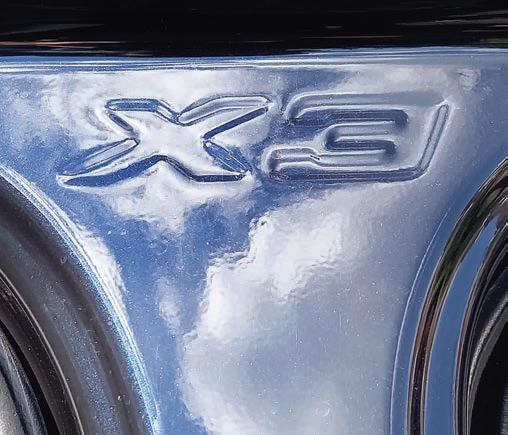
I don’t think there’s a right or wrong way of looking at it – there are a lot of drivers out there and the industry can’t expect them to have the same tastes. But one of the great things about the iX3 is the fact that it is based on an already impressive car – the X3.
It’s been frugal too our 43.3mpg average over the last six months has largely been on local roads but we’ve been able to get around 50mpg on mixed routes without much effort.
For comfort, practicality, refine ment and value, the Fabia should definitely be on the short-list.
to peers, manufactur ers and members of the general public, there seem to be two schools of thought when it comes to electric vehicles. On the one hand there is the futuristic “you’ve never seen – or driven –anything like this before” (see Hyundai’s Ioniq 5, for example)
vision. But there are also lots of fans of ‘traditional’ cars that have had the engine removed and a battery pack inserted in its place. This latter group is especially important in the shift to EVs, because some people are natu rally resistant to change, so it’s important to keep things familiar.
For me, big plus points are buttons (having been frustrated by a few models re-cently that have gone down the haptic/ touchscreen only route) and general layout. As much as I admire a fresh approach to interi ors, sometimes you just have to re-spect the ‘if it ain’t broke, don’t fix it’ rule of thumb.
I’ve said before that the X3 does the vast majority of things really well and I stand by that. If I’m being picky – or, to be more accurate if Mrs Challen is – the ride is a bit firm, which isn’t great given the state of a lot of

UK roads at the moment.
Our time with YH21 FXR is nearly up and it will be sorely missed. The range might not be enough for some people, but after nearly 8,000 miles, it’s never presented me with any problems.
John Challen
A s I said in my last update, our Aurora Blue Cupra Born was handily subbed (for two weeks) by a Vapor Grey e-Boost model in V2 trim and a worthwhile comparison it proved too.
In the case of both cars, they are still a rare and unsual site on
UK roads with, at the last count, around 25 people asking me “what is it?”. Sitting in the Born managed to convince one wouldbe Volkswagen ID.3 driver to change his next company car order and this is surely Cupra’s plan of getting backsides on seats.
Colleagues have cited the Born’s heating and volume controls as being a little fiddly with no buttons and only sliders, but I think I’m used to them now. I also find the infotainment system clear and relatively intuitive, if not quite as responsive as Tesla’s offerings.
But then there isn’t a Tesla under £40k, nor is there one as relatively compact as the Born, which is simi lar in size to Kia’s impressive new 280-mile range Niro EV.
The Born’s efficiency has dipped a little in the last few weeks, due to several long motorway journeys knocking the mpkWh figure. However, it’s reassuring to see that BEVs capable of rapid charging can perform broadly the same role as ICE vehicles on the fleet, especially if rapid chargers are convenient for any planned route. And from an EV user-experience point of view, the charging infrastructure is improving noticeably by the month.
Luke WiknerAchance conversation in the school car park the other week highlighted two things – a) people’s appetite for big, thirsty SUVs is waning and b) not many people know what the Allspace version of the Tiguan is.
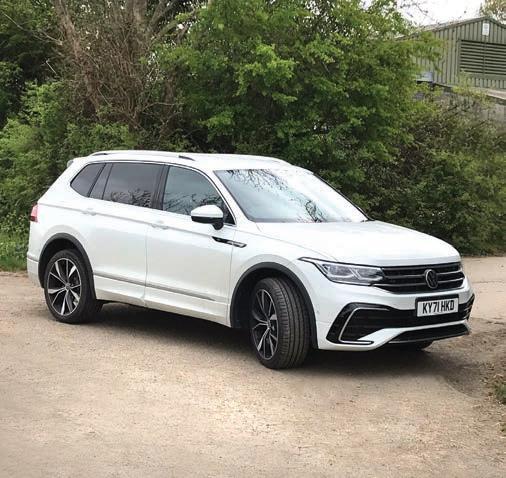
My conversation with two SUV-driving mums revealed that their cars’ thirst was becoming a problem in our current straitened times. They love the seven-seat layout and size of their current models, but are finding them harder to justify financially.
When I pointed out that ‘my’ Tiguan is an Allspace sevenseater, they all looked surprised – they’d never heard of the model before and were surprised it could accommodate a third row of seats. They were even more surprised when I said you could get two adults in the rearmost seats too, and without having to be a contortionist to access them thanks to the simple one-touch ‘tilt and slide’ move ment of the middle row.
They were even more intrigued when I told them that it’s available with a 2.0-litre diesel offering around 47mpg combined – way in excess of what their V6 diesel models currently return.
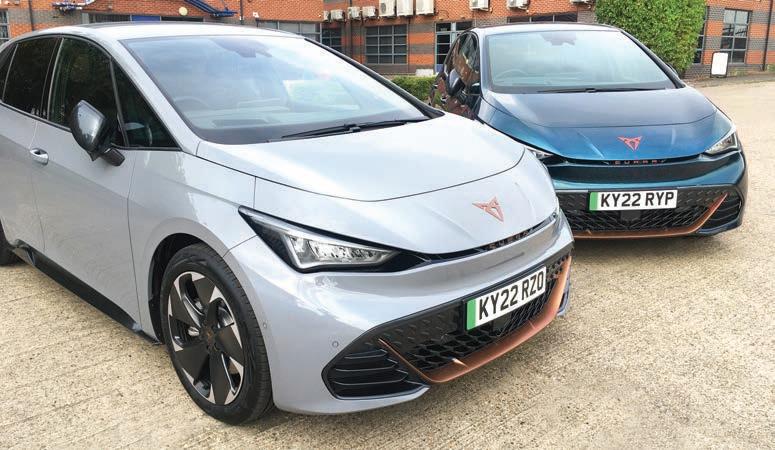
These are the type of people
who will be reluctant to give up their SUVs – they love the looks, security and status of them, but being able to switch to a model which is much cheaper to run would convince them to trade down slightly.
They wouldn’t feel shortchanged by the amount of equip ment either – our R-Line model has everything you could require – climate control, advanced digi tal displays, sat-nav, phone/ music compatibility (Apple CarPlay/Android Auto), a suite of safety and parking assistance systems and rugged looks thanks to some extra body styl-ing and a set of 20-inch alloy wheels.
As a way of tightening one’s belt without losing too much of the SUV appeal, the Tiguan Allspace is a great alternative… it’s a shame more people haven’t heard of it.
KirkWe bid farewell to the big ‘leccy Audi, as the e-tron heads back to base after an enjoyable six months in the Fleet World family. Before it departed, it crossed over at Challen Towers with its replacement, the BMW iX3. Some interesting compar isons ensued, with a lot of debate within the family about which is
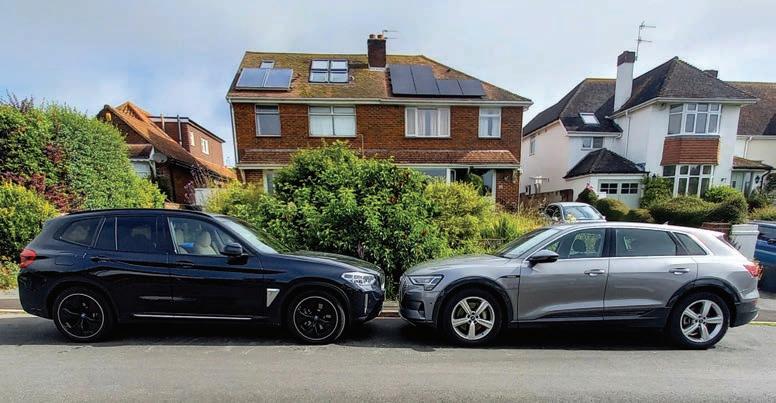
the ‘better’ electric vehicle.


The Audi has a lot going for it – that’s one advantage of sharing many elements of existing and popular ICE or hybrid models that have been around for a while. The interior is first class – as you might expect – and the build quality is also impressive.
There were a few niggles,
including some strange behaviour from one of the tyres. It occasion ally lost pressure – causing the warning system to helpfully chime in – but it wasn’t losing air fast enough to be a slow puncture. And sometimes it would go for months without any issues.
Talking of issues, another gremlin in the system was the


infotainment unit, which once or twice decided to reset itself, but not actually come back to life until you left it for a while to get over its little strop!
But, on the whole, the big etron did plenty to impress. It has the ability to transport five in comfort, is quick off the line when you need – or want – it to be and dynamically, it is an impressive piece of engineer ing. Also – having plenty of time to get used to living with an EV, the presence of a charging point on each side of the car made life much easier on several occasions.
John ChallenElectric cars are the future, right?
With the likes of a single-seat race car with 335hp from only a battery pack and a potential top speed of more than 174mph, I say bring it on!
Nissan entered Formula E four years ago, joining a motor racing series that will start its ninth season in the coming months. (It’s actually badged as the 2022/23 Formula E World Championship, but it kicks off in Mexico in mid-January 2023).
Nissan – like many of the other manufac turers involved – decided to jump on the bandwagon to showcase its innovations in electric vehicles. There was also the added benefit of proving to an audience who predominantly favour petrol-based motor sport that racing with batteries and electric motors can be fun. A lot of die-hard F1 fans won’t have any of it, obviously, but for others with a slightly more open mind, it’s quite the spectacle.
These are interesting times for the world of Formula E – Nissan and its counterparts have left the second-generation car behind and are busy preparing for the more powerful third-generation racers.
The outgoing Nissan (pictured – its
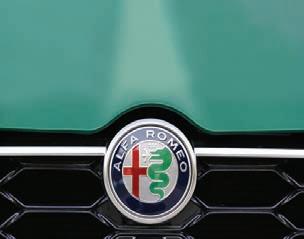
replacement is still under wraps) was already quite a rapid performer (0-62mph was dispatched in 2.8 seconds), but the new car promises to be something else. Lighter and smaller than the outgoing model, the Gen 3 variant will boast a 469hp powertrain at the rear, in addition to a 335hp one at the front. While the sprint time to 62mph hasn’t been declared, it promises to hit a top speed of 200mph.
powertrain. To clarify, the Gen 3 car will have 40% of its energy produced via regen erative braking during the race.
The cars might not look like traditional Nissans, but the names are familiar. For the 2022/23 season car #22 is the Leaf and #23 is the Ariya. Once again, the Japanese brand is making the link between road and race car and who can blame it?
Such is the success of Nissan’s power train in the Formula E racer that it has agreed a deal to supply McLaren (I know, right?) with the technology for the upcoming seasons. McLaren, which acquired the Mercedes EQ team for the 2022-23 season, said Nissan was an “ideal partner” for its debut season in the race series.
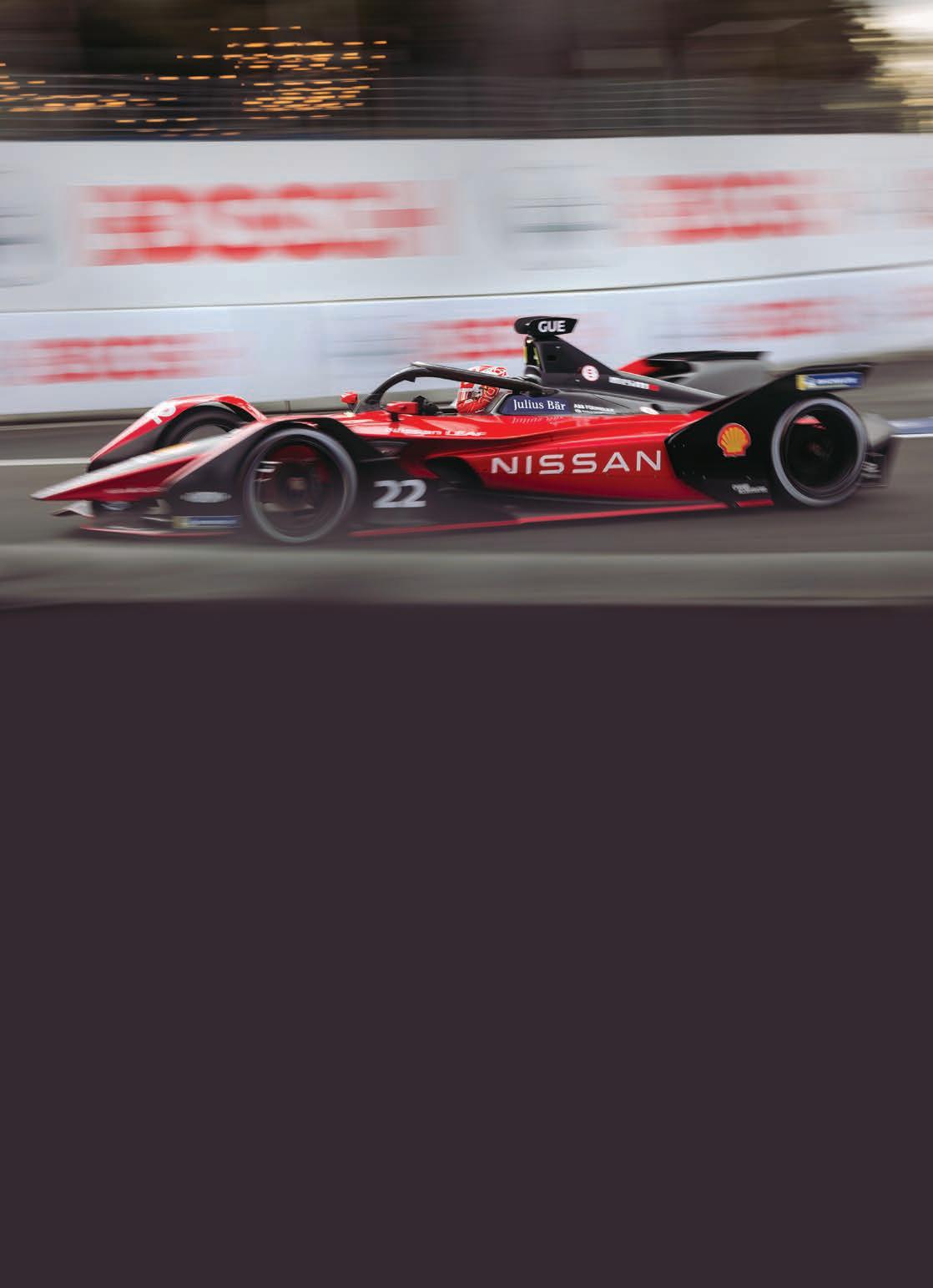
There are several milestones with the new Nissan racer. To start with, it’s the first Formula car with both front and rear power trains. In addition, it’s also the first car of its kind that has no hydraulic brakes, thanks to the addition of regeneration via the front
Efficiency is a key consideration through out the car – but also the team. Sustainabil ity rules (important when you’re trying to ‘sell’ a race series that travels – by plane –all over the world) dictate that the maxi mum team size is 17. And that includes the drivers who, as it happens are also new for next season. Norman Nato and Sacha Fenestraz are the two to watch who will be behind the wheels of the ‘other’ Ariya and LEAF models…







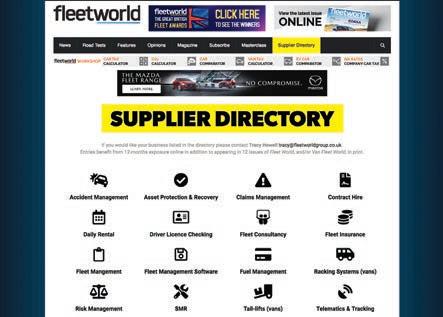







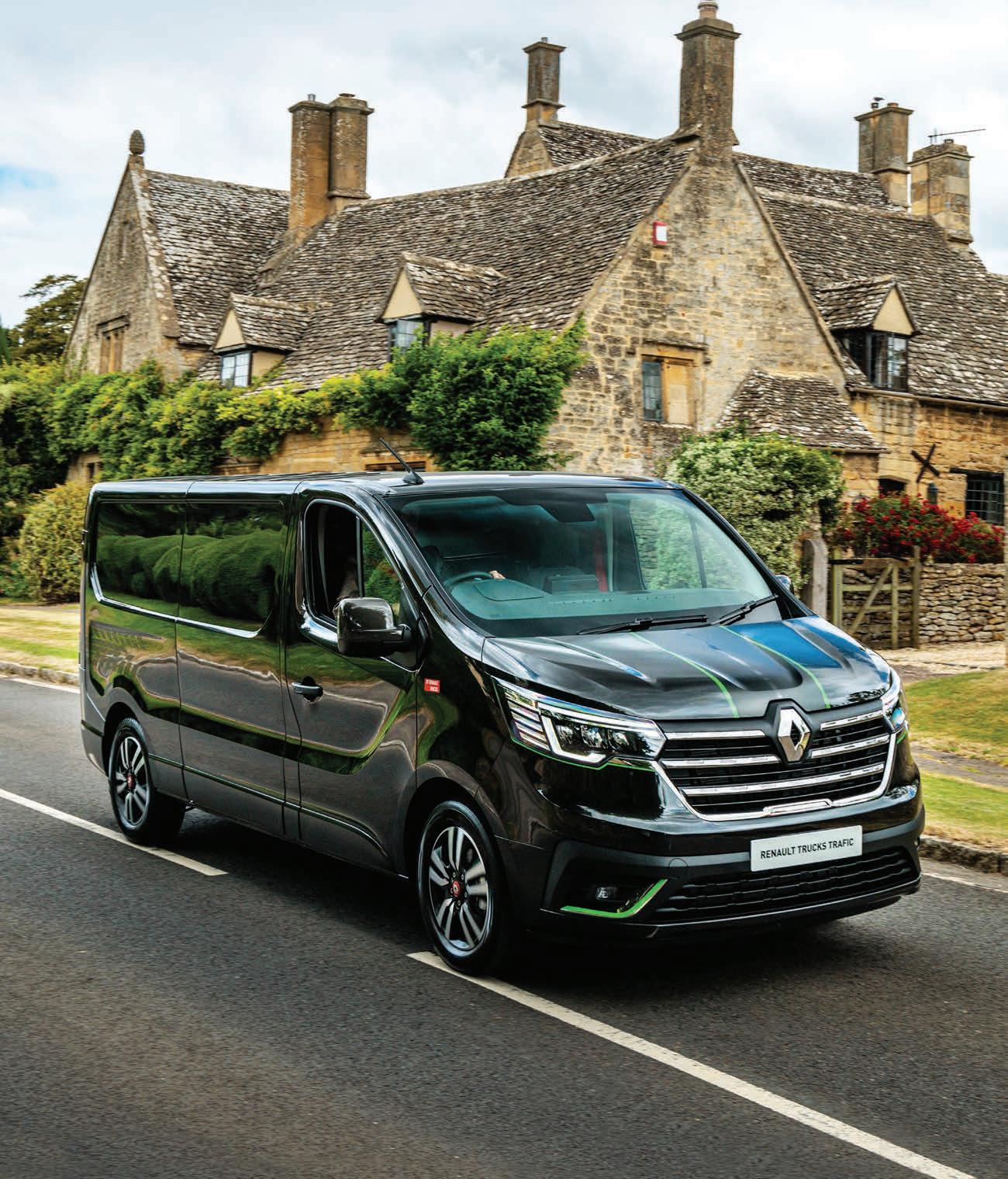






It’s four years since the IAA Hanover Commercial Vehicle Show has been staged and the 2022 version, although smaller than in the past and running for fewer days, brought us the first glimpse of several new models. Maxus took the opportunity to show a revised version of the T90 electric pickup first seen at the CV Show at the NEC a few months ago. The latest version offers an uprated one-tonne payload. Ford and Volk swagen were unveiling their jointly developed pickups – the new Ranger from Ford and new Amarok from VW. VW also gave the ID. Buzz Cargo electric van its first public showing and it walked away with the Interna tional Van of the Year Trophy on the first evening of the show.
Back on the Maxus stand, the company took the wraps off its entry into the light truck market. The EH 300 comes with a 7.49-tonne gross vehicle weight and a 128kWh battery, giving it a range of up to 132 miles.
Besides the new Ranger, Ford also gave the E-Transit Custom its public debut. It will share the driveline from the E-Transit when it makes its UK debut at the end of next year. Ford claims a range of up to 236 miles and a rapid charging capability of up to 125kW.

Renault took the wraps off the Trafic E-Tech electric model, which will be available in a range of sizes. It will offer a range of up to 149 miles on a full charge and will be offered with a selection of charging options.
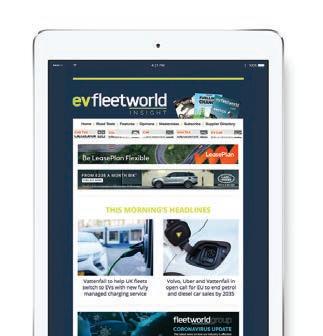
Away from Hanover, yet another van from the Stellantis stable rolled off the Luton production line with the first Fiat Professional Scudo to be built in the UK.
All this took place over the space of a few days in September and even though component shortages continue to stretch delivery times, it was refreshing to see a more promising future ahead, at least where the motor industry is concerned.


Fuel prices seem to have stabilised at the moment, but with costs rising across the board, as well as the everyday pressures of running a fleet, lcv fleet management software could help to ease some of those pressures. VFW has been looking at some recent developments to see how they might help fleet managers
It is over 20 years since tyre manu facturer Bridgestone acquired TomTom Telematics from its Dutch parent. The company was probably one of the first tyre manufacturers to realise that the future was going to be digital and that a tyre manufacturer could benefit by acquiring a company that had already established itself in that area. The recent IAA Hanover CV Show gave the company a platform to launch new products. The company describes its Fleetcare Go Plan, as a connected premium tyre and vehicle maintenance solution aimed at small and medium sized fleets. In one package, the company is offering Bridgestone tyres and vehicle maintenance, interfaced with the company’s Webfleet telematics. The tyres will be maintained through Bridgestone’s partner network.
Fleetcare Go Plan has been developed from Bridgestone’s recently launched Fleetcare package, aimed at large fleets, by giving customers a standardised package compared with the customis able Fleetcare deal. Each customer has access to a dedicated Fleet Portal, providing information on fleet status,
services delivered, invoices received and contract progress. The software includes usage-based pricing, paid for with a monthly subscription. For van customers, bills will be re-calculated every six months, even if it differs from the original quotation.
Jan Maarten de Vries, CEO of Bridge stone Mobility Solutions, says: “We believe that by providing actionable and data-driven insights that enable our customers and partners to improve their fleet and mobility performance, we become part of the change we want to see towards a sustainable world.”

VFW spoke to de Vries at the Hanover Show, who told us that establishing Fleet care is an important milestone for the company. “It’s also the beginning of where we go next, so it’s a foundation, a platform for developing ourselves as a one-stop shop for fleets.” He believes that it will help fleets to address their core requirements, “Being compliant with the regulations, being more efficient in util ising their fleet, but also being more productive, so less waste and being more sustainable and safer on the roads. Those are the key dimensions of the needs that
De Vries told VFW that there are two specific areas that he believes fleets need to deal with; fragmentation and a lack of transparency. “On the one side you have fragmentation. That means fleets have to work with a lot of different suppliers to solve different parts of their needs. I foresee that over time, where we build more on this foundation and act more as this “one-stop-shop”, solving the needs around the tyres, solving the needs around fleet management, main tenance and so on. When we act more as a one-stop-shop, we can actually defragment the problem of the fleets, not having to work with multiple contracts, multiple suppliers and the integration issues that go with it. Also what comes with this is one digital interface that people in the fleets can use to have a good overview of all the stuff that is rele vant to them. This single digital inter face, so when they use services from other companies, it goes from this single interface and it acts as a kind of interac tion with different types of company.”
De Vries expects there to be an evolu tion in the way that data is used to provide a better insight into fleet activ ities, “I think still today, with the current standard of fleet management, we are not where we will be in the future, because data is often used reac tively. So data is extracted from the vehi cle. It is processed in the platform and it is delivered to the fleet. Inside on the user interface they can see where their vehicles are, they can see how their driver is doing, what they are doing, they can see whether the vehicle has a problem or not – those things.
“In the future, I foresee that that will evolve into a more predictive and preven tive phase, using smart technology and then also the processes around the oper ation of the vehicle and the fleet.”
Streamlining the insurance claims procedure is the aim of the Champion Insurance Group in launching its iWit ness Motor Claim Notification Portal.

Champion issued its fleet policyholders with a QR code which was printed on Champion branded ‘bump cards’, vehicle dashboard stickers, or drivers’ key rings. The driver can then initiate an insurance claim from the scene of an accident, by scanning the QR code. This will take them to the iWitness portal where they are guided through a simple incident reporting process and encouraged to upload images and videos from the scene directly from their smartphone.

Champion claims that the company can configure the portal, according to policyholder preference, to automati cally request statements from witnesses and obtain their version of events while the details are still fresh in their memory. The company says this
information can help policyholders defend against contentious claims.
to improving fleet fuel eff iciency.
Fleetclear Connect offers a web-based fleet management software system that provides a simplified way to manage vehicles and drivers. The system combines hardware with GPS tracking, telematics, driver behaviour, advanced data analysis and processing techniques.
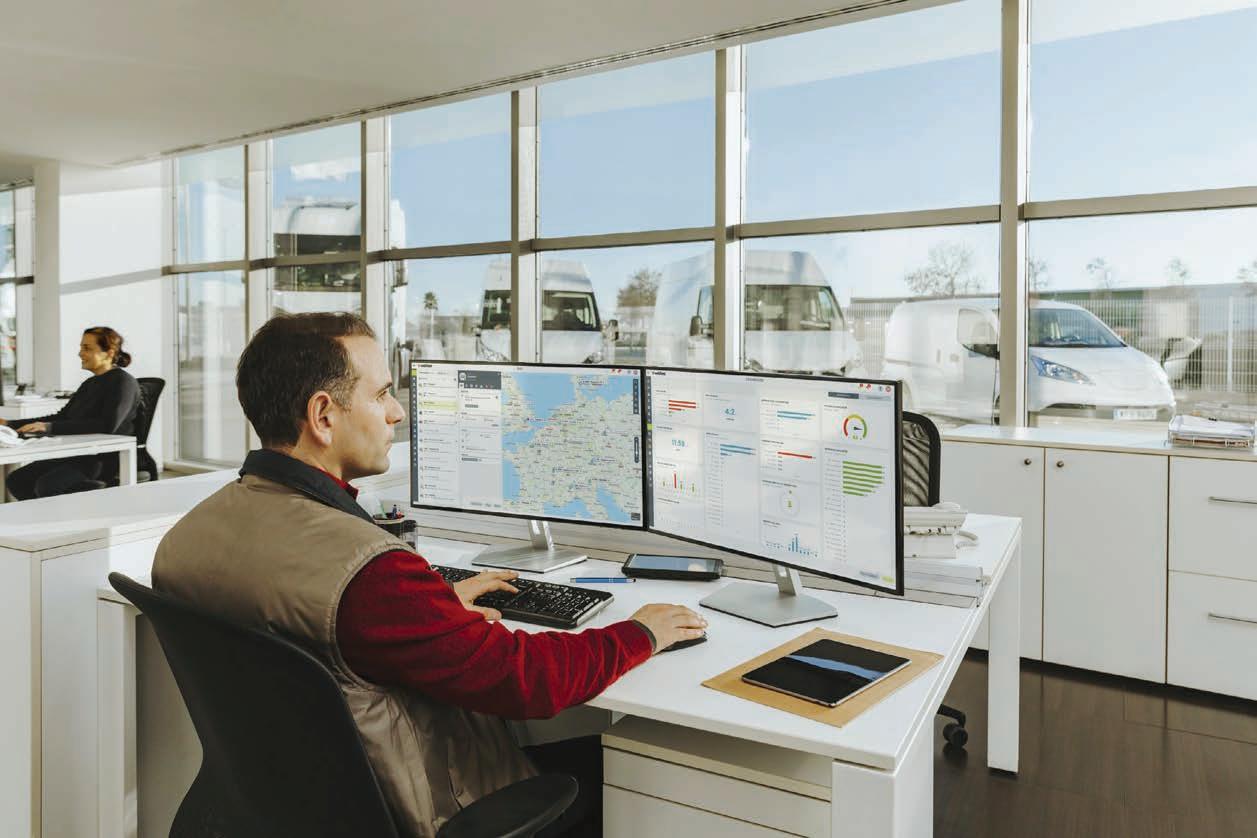
“Fuel costs can represent as much as 60% of a fleet’s total operating budget and any reduction can have a signifi cant impact on an organisation’s bottom line,” says Fleetclear technical director Chris Waller. “The Fleetclear Connect system offers a real-time telematics solution that can provide valuable insight into route optimisation, driver behaviour and vehicle performance. Changing behaviour at the driver and vehicle level are crucial when it comes
“Our Driver Efficiency Report provides insight into driver behaviour and high lights areas for fuel efficiency improve ment, such as excessive idling, harsh braking, and acceleration/deceleration. Drivers are ranked according to their effi ciency performance compared to the rest of the fleet and in relation to their best potential. The same tool can be used to identify and recommend the use of elec tric vehicles in areas that might be suit able. Electrifying a fleet will not only reduce carbon emissions, but will also decrease operational costs, with poten tial fuel savings of up to 79%.” Fleetclear also provides tools for vehicle routeing, fuel and maintenance reporting.
“Drivers can initiate vehicle insurance claims from the scene of an accident, via a QR code”
R enault Trafic buyers have a choice in the UK between the van models produced and sold by the manufacturer of Renault cars and LCVs and a range of the same vehicles sold by Renault Trucks. The synergy between the two dates back to when the two companies were under common ownership.
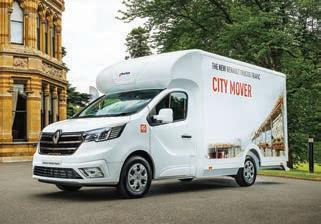

The Renault Trafic Red range is a recent addition to the Renault Trucks portfolio in the UK. It gives dealers an extra line of business in sales and servic ing and from the customer’s perspective, it provides a range of medium vans from a dealer network which offers truck dealer opening hours.

Not surprisingly, Renault Trucks is tilt ing at small business customers for the Trafic RED, offering three trim levels from the Entry model, Red EDITION to Red EDITION Exclusive. There is also an extensive range of models. The standard roof model van, crew van and combi is based around a 150hp engine with sixspeed automated transmission, while a six speed manual is available across the range. Longer models with the high roof (L2H2) are currently only available with a six-speed manual but Renault Trucks is exploring and automatic too.
Besides the 150hp engine, Renault
Trucks is offering three other power ratings from 110hp, 130hp to 170hp, so there is plenty of choice for customers. Since the company is offering a wide range of body styles, the broad engine range will enable customers to match engines to their particular operations. Vans are avail able in L1H1, L2H1, L1H2 and L2H2 body styles. Crew cab models are available only with the standard H1 roof but in both body lengths. Unusually for this size of van, there is a platform cab option for those who need something other than the stan dard van body. The Combi, like the Crew Cab model is available in both lengths but only with the lower roof height.
Models are distinguished from other Renault Trafic models by the Renault Trucks rear emblem plate, Red EDITION livery, red seat belts and gear lever knob with red surround. Standard equipment includes manual air conditioning, cruise control, and an induction charger for phones. Exclusive trim includes an aluminium grain dashboard, a synthetic leather steering wheel 8-inch central screen with mirror link, Bluetooth, USB, lumbar adjustment for the driver’s seat, a passenger bench seat and hands-free access key.
Renault Trucks is offering a range of
special edition models. This includes the Dakar Edition, which features a two tone leather interior, hand wash facility, Bosch jet wash and illuminated step wells.
The 1894 Edition is a reference to Renault Trucks founder Marius Berliet. The interior features blue alcantara and gold trim as well as a fridge in the cab, it also comes with alloy wheels, side bars, rear spoiler and 1894 livery.
Racing Edition models are available in Van, Crew Van and Combi with a blue and red theme from the Alpine F1 racing cars. It gets a leather interior as well as side bars and rear spoiler.
If the Trafic van body is not large enough, The City Mover Luton bodied platform cab offers 17m3 of body volume and a 950kg payload. Features include a 3,700mm long body and load through facility.
Renault Trucks has devised OptiSafe to deter thieves featuring extra levels of security. The range continues with a chiller conversion for the van body, as well as Multitrade conversions aimed at plumbers, electricians and builders. There’s also a platform cab chiller conversion, cage tipper, jiffy truck and even a motorhome conversion on L1 and L2 models.
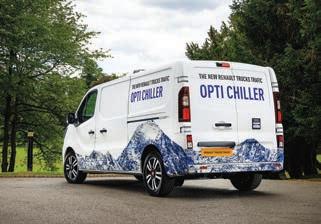 Need more choice and extended hours servicing? Trafic Red could be the answer, says John Kendall
Need more choice and extended hours servicing? Trafic Red could be the answer, says John Kendall

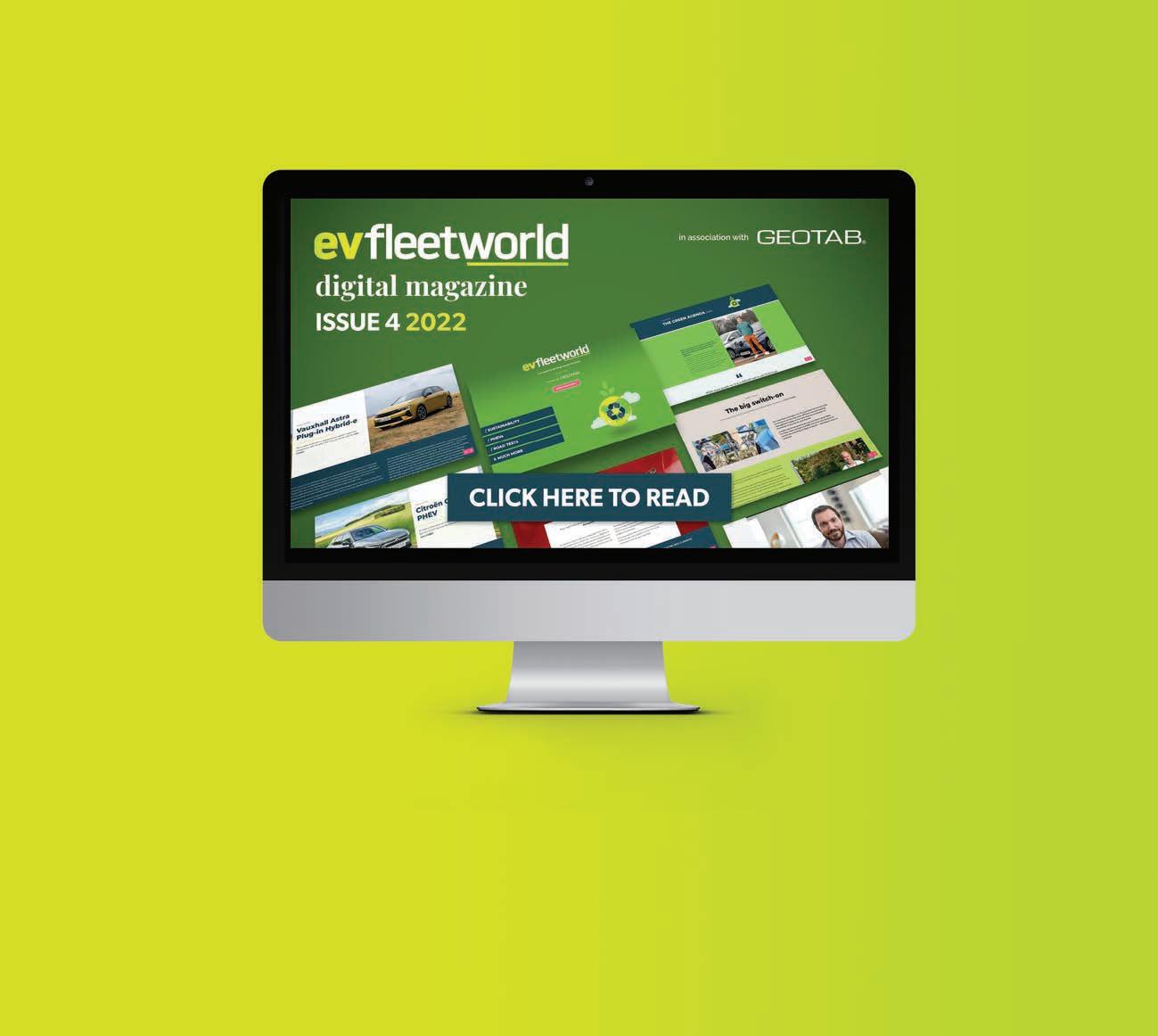
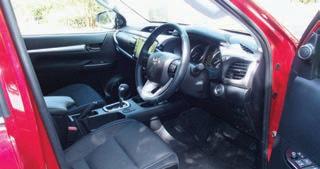
Customers don’t have as much choice as they used to in the pickup market since the departure of Mitsubishi and Nissan. Even so that still leaves a choice of Ford, Isuzu, Ssangyong and, of course, Toyota. It was only last year when the latest version of the long-running Toyota Hilux went on sale, refreshing one of the company’s best-known products on the international stage.
Gone are the days when Toyota only offered relatively modest power output. Customers have a choice between a 2.4litre, 148hp, four-cylinder turbo-diesel, or 2.8-litre, 201hp four-cylinder turbodiesel. This engine was introduced with the new model. Opt for the 2.8-litre engine and there’s a choice of either sixspeed manual or six-speed automatic transmission. Our test vehicle came with the 2.8-litre engine and automatic trans mission. All models are equipped with four-wheel-drive as standard and there is a choice of driver-selectable Eco and power mode settings.
There is also a full-range of body styles from a single-cab model to the Extra cab, an extended single cab, providing folding seats behind the front seats for occasional use, or alternatively, additional storage space. The double cab, tested here,
provides a compromise between seating for four to five adults, with a reduced load box, although one that will still provide a 1,000kg payload. Regardless of which model you choose, they all offer a maxi mum 3,500kg towing capacity.
Hilux was treated to a new frontal design and a refreshed interior. Standard equipment includes air conditioning, automatic headlights, Radio and CD player with Bluetooth connectivity and USB port. Toyota Safety Sense is also stan dard equipment which includes a PreCollision System, adaptive cruise control, lane departure alert and Road Sign Assist.
Invincible models, like our test vehicle, get front and rear parking sensors, LED rear lights, 18-inch alloys, heated front seats, auto-dimming rear-view mirror and windscreen wiper de-icer. There are also LED headlights, smart entry and pushbutton start as well as a tailgate damper and automatic air conditioning.
As we’ve said, the load area is some thing of a compromise with the double cab, while Toyota’s accessories list is a long one with a choice of hard tops and roller shutter covers for the load area.
On the road, the Hilux offers a tradi tional pickup ride with a tendency to roll, but the long-travel suspension that is
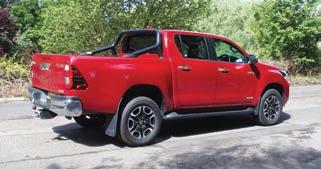
partly the cause of that is necessary for a load bearing, off-road vehicle. Axle artic ulation is needed to ensure the Hilux will keep going over rough terrain and that inevitably means long travel suspension.
The engine can certainly deliver the power. It may not be the most refined diesel available but with 500Nm of torque available it should have no difficulty towing or making progress across rough terrain, which is what the Hilux was designed for. It’s a capable motorway cruiser too and can cruise all day at speeds above the legal limit. Fuel consumption reflects the power and torque available and it is unlikely to be an issue for pickup users who will choose the Hilux because they need its capabilities. If you are in the market for a 4x4 pickup, the Hilux’s reputation goes before it.
The Hilux reflects Toyota’s years of experience in producing 4x4 off-road vehicles. Choosing one is not likely to be something that fleet operators will regret.



